Riverboat Gambling In The US – The Best Riverboat Casinos
We count on Jane to inform our readers about the latest slot games in the US market. With her passion for video games and a degree in engineering, she’s our gambling tech expert . Jane’s also active in our blog section, where she tackles the curiosities and changes in the industry.
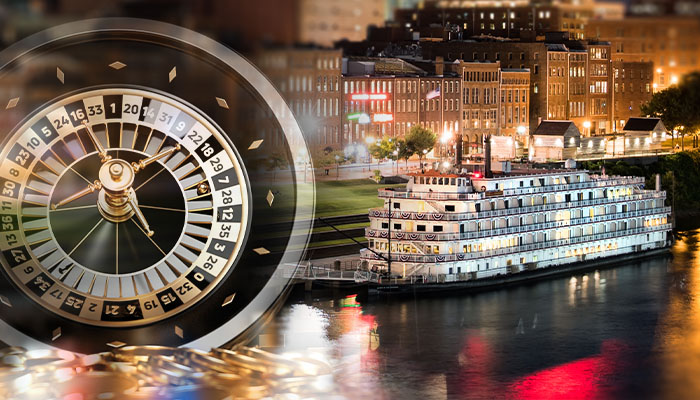
If you were to close your eyes and imagine a riverboat casino, your mind will probably conjure up an image that would look like something straight out of a Mark Twain novel. Riverboats are represented in pop culture as paddlewheel steamboats that float around languidly, while the cacophony of laughter and excited hoots make their way through the air.
However, riverboat casinos are far more advanced than once thought out to be, offering a unique experience to tourists and seasoned gamblers. In this guide, we’ll take a trip down the river and explore the origins, history and current state of the best riverboat casinos in the USA. All aboard!

Riverboat Gambling In The US – The Rise of the Riverboat Casinos
If only it was easy to point out a go-to destination for the best riverboat casinos. Riverboat gambling goes back a long way through American history. To see a complete picture of riverboat gambling today, we need to first ride down the cruise ship of history to discover the origins of riverboat gambling . Meanwhile, if you are located in any state with legal online gambling, you can play at any of the best online casinos in the US . Read on till the end of this guide to take your pick on the best riverboat casino locations.
- 📖 History of riverboat gambling
- ⛵ Riverboat gambling economies
- 🧐 Fun Facts
- 💰 Riverboat Casinos Today
History of Riverboat Gambling in the USA
When riverboat gaming first took the USA by storm, paddlewheel riverboats had long been used on the Mississippi River as a means of passenger and freight transportation. With the advent of the railways, riverboats saw their utility decline and started to be viewed as entertainment and leisure vessels by the public.
Boat cruises were popular for their live music and dancing, but also as a way to escape the crowded cities across the US. As these boats became entertainment hubs, gambling gained popularity on board . Initially, gambling was limited to card and table games, but slot machines were eventually added to most riverboats. Nowadays, players in states with legal online gambling can enjoy the best real money online casinos . For example, if they are within the state of New Jersey, they can enjoy the best online casinos in NJ without leaving the comfort of their own homes.
As the Mississippi River served as the border of several states, it created the perfect legal gray area. In 1903, several states simultaneously softened their stance on gambling due to the economic potential that it offered. Thus began the golden era of riverboat gambling . The first casinos were required to be located on ships that would have to sail away from the dock. In some parts, gambling was only allowed once the ship was sailing.
The Lyndon B. Johnson Era
The administration under Lyndon. B Johnson placed significant restrictions on what riverboat casinos could legally do. In 1951, the Transportation of Gambling Devices Act was passed, which made the transportation of gambling devices across state borders illegal. This placed limitations on how riverboats could operate.
Riverboat casinos were first approved by state lawmakers in the late 20th century by those states which prohibited gambling on land. In the 1980s, lawmakers had the vision to revive the golden era of riverboat gambling. Several states simultaneously introduced laws that permitted gambling on water vessels, creating the framework under which they still operate today. Iowa was the first state to fully legalize riverboat gambling . Apart from Iowa, Riverboat gambling is legal in Mississippi, Illinois, Indiana, Louisiana, and Missouri too.
Riverboat Casino Economies
In 2010, there were 10 operational riverboat casinos. This number might pale in comparison to the number of land casinos in the United States, but riverboat gambling saw a massive boom during the 2010s. In 2018, there were 63 riverboat casinos in operation across the legal states. This spike in growth suggests that riverboat casinos have a distinct appeal, separate from that of land-based casinos.
Riverboats make massive contributions to local economies, as all winnings are taxed by the state. Before you start playing, make sure to acquaint yourself with the gambling commission of the state in which you are planning on playing. In Iowa, if you win over $1,200, you’ll be paying an eye-watering 15% as tax to the state and 5% to the local community, whereas in Iowa, the tax rate stands at a little over 5%.
Proponents of riverboat casinos frequently argue that these floating casinos increase employment rates in the communities where the boats are docked. To support the requirements of large floating casinos, communities are engaged in the development of restaurants, shopping, accommodation, recreation, and other hospitality facilities to capitalize on the spending power of visiting tourists .
Since state legislatures were never willing to give up on the revenues generated by casinos. In a unique ruling in 1998, courts had stated that boats had to be “solely over and in contact with the surface” of rivers, thereby eliminating the need for actual floating vessels. Over time, the rules were amended to allow the construction of casinos on stilts , with the caveat that they had to be located in navigable water.
Fun Facts About Riverboat Casinos
Before we get into the list of top riverboat gambling destinations, we would like to share a few fun historical facts and trivia that you might find interesting. These facts might even make good conversation starters should you get down to maritime gaming.
When riverboat gambling was legalized for the first time in the late 1980s, different states put forward varying cosmetic requirements . In an inconvenience to casino owners, all Louisiana riverboat casinos were required to be constructed exactly like the 19th-century paddlewheel steamboats, for reasons unknown. To run a legal riverboat casino in Indiana, vessels had to have a minimum length of 150 feet and a minimum carrying capacity of 500 passengers.
There have also been violent incidents associated with riverboat gambling. As riverboat casinos operated on the water, it was often thought that they were somehow exempt from the laws of the land. Historians have discovered several instances of individuals punishing cheaters and thieves by taking the law into their own hands. in 1835, five gamblers were lynched in Vicksburg Mississippi when they were caught cheating.
Some of the biggest reforms to riverboat gambling were brought on – unfortunately – by Hurricane Katrina. Before 2005, most riverboat casinos only allowed gambling when the vessel was sailing. However, this was not realistic all year round, as boats could not leave their docks in unpredictable weather . After Katrina, most state laws dictate that riverboat casinos need to be docked for safety.
Riverboat Casinos Today
The Mississippi River region is still the hotbed of all riverboat gambling in the United States. Today, there are over 20 riverboat casinos that gamblers can choose from. Let’s take a look at some of the best riverboat casinos today. In order to make this list, the casinos that we evaluated have had to meet stringent requirements of variety, novelty, hospitality, and service.
The Amelia Belle, Louisiana
One of the best riverboat casinos in Louisiana that we recommend are owned by Boyd Gaming, the casino giant from Paradise Nevada. The Amelia Belle is located in Amelia Louisiana , between Houma and Morgan City, built on the edge of the water in the Avoca Island Cutoff waterway.
The Amelia Belle could easily be considered one of the beautiful casinos in this guide. Spread out over four stories, it sports a turn-of-the-century look and appears stunning when illuminated at night. The Amelia Belle has over 800 slot machines and 15 table games .
The Amelia Belle recently added dining options to feed the hunger of visiting gamblers. If you are visiting, drop by the Bayou Cafe on the first floor to grab a quick bite. The Amelia Belle is open 24×7 on the weekends and you can expect games like Blackjack, Texas Hold ‘Em, Three Card Poker, and Electronic Roulette.
Grand Victoria Casino, Illinois
The El Dorado Resorts-owned Grand Victoria Casino is located on the Fox River in Elgin, Illinois. The Grand Victoria stands out from the other top riverboat casinos in this guide as it has an abundance of restaurants on board . Before we look into their gastronomical offerings, let’s examine gambling aboard the Grand Victoria.
The Grand Victoria offers a gambling experience unmatched by others in the area. With a casino floor that covers 29850 square feet , you could spend hours at the Grand Victoria without going through everything that’s on offer. The casino even has a High Limit Room for big bettors.
Within the casino, you’ll find 1000 of the most popular slot machines and video poker games. You can also try your hand at 29 Vegas-style table games, a poker room, a lounge, and seasonal entertainment venues . There are also several well-established hotels near Grand Victoria, in case you want to make your excursion a multi-day affair.
While most riverboat casinos were slow to catch up to fine dining experiences, the Grand Victoria is ahead of the curve. You can indulge yourself at four restaurants on board named Buckinghams Steakhouse and Lounge, Indulge Show Kitchen Buffer, Crave Deli and Prime Burger house.
Casino Queen Marquette
Casino Queen Marquette is a smaller riverboat casino owned by CQ Holdings. Thanks to its small size and limited capacity, Queen Marquette offers a more exclusive and personalized experience in comparison to other top riverboat casinos. Located next to a 31-acre site, the casino has a marina, an enclosed dining pavilion on the first floor, and an entertainment center on the second floor.
Since it is a small and quaint casino, you will only find 8 live tables at Queen Marquette. This is balanced out with the provision of 566 slot machines and video poker games . Some of the games you can look forward to playing at Queen Marquette are Mississippi Stud, Ultimate Texas Hold ‘em, Blackjack and Fusion Roulette.
Ameristar Casino MIssissippi
The Ameristar Casino is located on the banks of the famed Mississippi River. It is conveniently located on the Mississippi-Louisiana border just off Interstate 20. The casino is part of a much larger complex featuring a hotel, three restaurants, a blues bar, a cabaret, and a full-service RV Park.
The Ameristar Casino has 70,000 square feet of the casino floor. You can enjoy games at 27 tables or 1571 gaming machines. There are also 10 live-action poker tables. The casino has been designed to retain the atmosphere of a 19th-century gambling boat .
Frequently Asked Questions
If you’ve had your eyes glued to the screen till the end of this guide, you know exactly where to go to find an authentic riverboat gambling experience in the USA>. Apart from the casino boats mentioned in this guide, there are several others that are worth looking into. However, we can guarantee that you will have a fabulous experience playing at the casinos that we have covered in this guide.
Is riverboat gambling legal in the USA?
How many riverboat casinos are operational in the usa, which is the best riverboat gambling facility in america, what games are available at the best riverboat casinos, what additional facilities are available at riverboat casinos.

- Terms & Conditions

History of Riverboat Gambling on the Mississippi

The South has always been at least somewhat friendly to gambling due to the rise of the riverboat in the early 1900s. Games of chance were kept on the water so that anti-gambling laws wouldn’t apply. Games like poker and roulette took place on grand riverboats, even if the ship never left the dock.
This tradition was greatly reduced when the railroad became the main way to transport both goods and people, but some riverboats remain in the South today. In Mississippi and Louisiana, especially, retired steamboats are now used for river cruising and for gambling in places like Vicksburg.
Online casinos are one of the latest innovations in the casino industry. Since the rise of technological advancements, they are solid competitors to U.S.-based land-based casinos. Many gambling restrictions still remain in the South and across the ocean. For example, every casino in the UK gets licensed by the UK Gambling Commission.
The regulations of the U.S. online casino market have led to developers existing who only get associated with U.S. casinos and are not available at UK-based gaming sites. Some famous developers for the U.S. market are RealTime Gaming, Relax Gaming, Rival Gaming, Elk Studios and Betsoft.
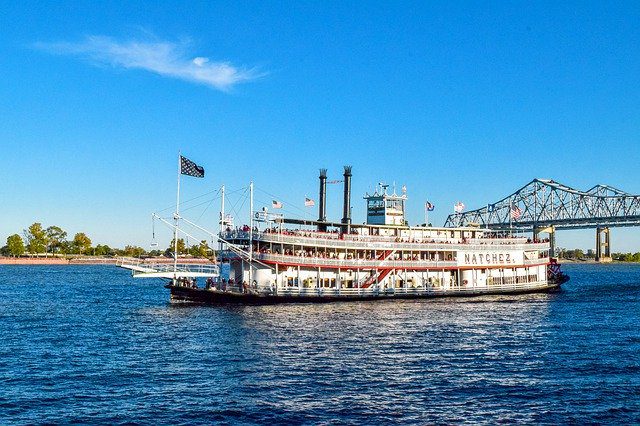
But for those players who want the old-time experience of dressing up and boarding a grand steamboat, the South has plenty for them. Just look along the Mississippi River from Missouri to Louisiana. According to Visit Mississippi , the first steamboat to travel the Mississippi River was the New Orleans, whose October 1811 maiden voyage began in Pittsburgh, Pennsylvania. The New Orleans stopped in Natchez in December 1811 before continuing to its final port in New Orleans.
Wealthy Southerners could afford to travel by steamboat, and some were ornately decorated in the Victorian style. The riverboat casinos that remain today continue that grand tradition, with music playing onboard, restaurants available to players and even live entertainment offered regularly.
So, if you want to step back in time and experience the old South by river—without all the outlaws and pirates —consider a riverboat cruise or evening of gaming.
SHARE THIS STORY:
Eco-conscious travel, the wild history of, related articles.

3 Must-Visit Histori

6 Creative Trips Thr

Best Photo Spots in
No comments, leave a comment cancel reply.
A Guide To The Most Iconic Riverboat Casinos In The US
- MEET THE TEAM
- PRIVACY POLICY
- TERMS OF USE

Talk about casino destinations and you’ll most likely think of Las Vegas, Atlantic City or, if you are travelling outside the US, maybe Monaco or Macau.

Yet what are called “land based” or “bricks and mortar” casinos to differentiate them from the online versions are not necessarily on land or made of bricks and mortar.
We refer, of course, to riverboat casinos, a little slice of Americana that’s as American as Super Bowl Sunday or Thanksgiving turkey. Riverboat casinos conjure up images of the Mississippi and Mark Twain complete with white suit, top hat and cigar. There are more than 60 riverboat casinos operating in the USA and every single one of them has a story to tell. Here, we highlight a handful of the very best.
The Grand Victoria, Elgin
Our first stop is not on the Mississippi at all, but on the Fox River in Elgin, 50 miles north west of Chicago . Owned and operated by Caesars Entertainment, the Grand Victoria really is a slice of Las Vegas on the Illinois waterfront. With more than 1,000 slots and video poker terminals and 36 tables, there’s a great choice of games.
If all that gambling whets your appetite, there are four dining options on board, including the highly rated Buckingham’s Steakhouse and Lounge.
Casino Queen, Marquette
The Casino Queen would look like a lifeboat if it was moored alongside the Grand Victoria, but that is all part of its charm. It offers a more intimate and personalized experience, and although there are only eight tables, they host an intriguing variety of games that are not commonly found in land (or water) based casinos. If you know how to gamble online in the US , you’ve probably seen fusion blackjack and 21+3 at US online casinos. The Casino Queen gives you an opportunity to play them in real casino surroundings.
When you step ashore, there is an adjacent 31-acre entertainment complex with a variety of attractions and a huge choice of dining options.
The Amelia Belle, Amelia
At last, we arrive in Louisiana, where the Amelia Belle lies nestled in the Avoca Island Cutoff waterway. This classic four-story riverboat looks like it has stepped straight out of a photograph from the turn of the 20 th century. When it is lit up at night, it takes your breath away.
At the tables, poker is the order of the day. The casino offers Mississippi stud, 3-card poker and Texas Holdem. There are also 800 slot games, while the Fanduel sportsbook has self-service betting kiosks, a wall full of television screens, and a huge video wall to show the biggest events.
Sam’s Town, Shreveport
On the opposite side of Louisiana, Sam’s Town could not be more different to the Amelia Belle. This floating leisure complex houses a hotel, health spa, sauna and live entertainment venue.
The casino offers more than 1,000 slots and 30 table games that include blackjack, roulette, baccarat, Let it Ride and Craps No More.
Team JST work with our sponsors, shop vendors, and many more to create informative and engaging content.
Jetset Times in your inbox
By signing up, you agree to our Privacy Policy and European users agree to the data transfer policy.

Is Aria The Best Choice For A Gimmick-Free Las Vegas Stay?

Top 10 Destinations Must Visit In New Zealand

What To Consider When Choosing A Hotel In Las Vegas

Great Ways To Make Money Online In 2024

The Best Games To Play On Your Halloween-Themed Vacation
- Golden Nugget
- Online Slots
- Online Baccarat
- Online Blackjack
- Online Roulette
- Casino Guides
- Destinations
The Legacy and Historical Influence of Riverboat Casinos in the United States

Welcome aboard as we set sail into the captivating world of riverboat casinos in the United States . On this page, we’ll walk you through their legal status and historical implications, explore the where, what, and why of these floating gaming venues, and finally, take a close look at the modern condition of riverboat gambling.
As we explore the ins and outs of this unique chapter in American gaming history, we’ll also take a glance at if riverboat casinos have left a mark on the WV online gambling scene and gambling in the US in general.
- Legal Status of Riverboat Gambling
- Boat Casinos Regulation in Various States
- History of Riverboat Gambling
- Popular Riverboat Casinos
The Legal Status of Riverboat Gambling
Historically, casino boats were allowed in many states, mostly those with access to the Mississippi River. Today, only six states still allow this form of gambling:
Mississippi
Gambling boats are essentially floating casinos operating on designated waterways . They offer a wide variety of gambling activities just like land-based casinos, including slots , table games , and poker .
Each state with legal riverboat gambling has its own regulatory body responsible for licensing and ensuring compliance with state laws and regulations. These regulations typically address aspects such as gambling activities allowed, revenue sharing with the state, security measures, responsible gambling practices, and environmental considerations.
While sharing similarities with land-based casinos, riverboat casinos face additional regulations due to their unique setting, such as:
- Licensing requirements . Land-based casinos typically have more stringent licensing requirements than riverboat casinos. For instance, land-based casinos may be required to undergo a more rigorous background check and financial audit process compared to riverboat casinos;
- Location restrictions . There are usually fewer restrictions on riverboat casino locations than on those of the brick-and-mortar venues. For instance, land-based casinos might not be allowed to operate in certain areas, such as residential neighborhoods or near schools. Riverboat casinos, in turn, are more flexible when it comes to location, as they can be moored on rivers that flow through various areas;
- Taxation . The taxation of land-based casinos and riverboat casinos can vary depending on the state. In some cases, land-based casinos may be subject to higher tax rates than riverboat casinos;
- Building codes . Land-based casinos are typically required to meet more stringent building codes than riverboat casinos. This is because land-based casinos are permanent structures, while riverboat casinos are considered temporary structures;
- Inspection and enforcement . Land-based casinos usually undergo more frequent inspections and stricter enforcement of regulations compared to riverboat casinos.
Generally, the regulation of land-based casinos tends to be more strict and comprehensive than the regulation of any casino on the Mississippi River . The reason is likely that land-based casinos are considered to have a greater impact on the surrounding community , both in terms of economic benefits and social costs.
State-by-State Riverboat Gambling Regulations
As of 2024, it’s legal to run and visit a riverboat casino in six states. Let’s take a closer look at each of them:
Here, riverboat casinos are allowed on the Mississippi River , the Illinois River , and the Des Plaines River . The casinos must be located at least 300 feet from the shore and be accessible to the public by land or water . Riverboat casinos in Illinois are regulated by the Illinois Gaming Board .
In Indiana, boat casinos can operate on the Ohio River , the Indiana Harbor , and the Patoka Lake Reservoir . They must be located at least 600 feet from the shore . Riverboat casinos in Indiana are regulated by the Indiana Gaming Commission .
In this state, it’s legal for riverboat casinos to operate on the Mississippi River and the Missouri River . They must be located at least 300 feet from the shore and are regulated by the Iowa Racing and Gaming Commission .
A riverboat casino in Louisiana is allowed to operate on the Mississippi River , the Red River , and the Gulf of Mexico as long as they are located at least 300 feet from the shore . The casinos here are regulated by the Louisiana Gaming Control Board .
Obviously, a riverboat casino in Mississippi can be located on the Mississippi River at least 300 feet from the shore . Boat casinos in Mississippi are regulated by the Mississippi Gaming Commission .
Last but not least, Missouri riverboat casinos are allowed on the Mississippi River and the Missouri River at least 300 feet from the shore . Riverboat casinos in Missouri are regulated by the Missouri Gaming Commission .
Brief History of Riverboat Casinos
Explore the history of riverboat casinos in the United States, tracing their origins, development, and impact on both the gambling industry and American culture.
19th Century: The Origins of Riverboat Gambling
The roots of riverboat gambling can be traced back to the 19th century when steamboats were the primary mode of transportation along the Mississippi River. As passengers went on long journeys, gambling became a popular pastime to pass the time. While gambling activities were generally illegal on land at that time, boats provided a loophole, as they were considered to be outside of state jurisdiction.
Early 20th Century: Decline and Revival
The invention of railroads in the early 20th century led to a logical decline in riverboat travel, and respectively, riverboat gambling. However, the 1970s saw a reappearance of interest in riverboat casinos, primarily because of the push to revitalize urban areas.
1990s: Expansion and Legalization
The 1990s marked a period of significant growth for riverboat casinos. Several states legalized riverboat gambling, and the industry expanded rapidly. By the late 1990s, there were over 150 riverboat casinos operating in the United States.
2005: Hurricane Katrina and Its Devastating Blow
In August 2005, Hurricane Katrina struck the Gulf Coast, causing widespread destruction and displacement. The storm severely impacted the boat casino industry in Mississippi and Louisiana, with several casinos suffering significant damage or complete destruction.
Late 2010s: Post-Katrina Recovery and Adaptation
The consequences of Hurricane Katrina brought significant changes to the riverboat casino industry. While some casinos managed to rebuild and reopen, others had to close permanently. The industry also faced increased competition from brick-and-mortar casinos, which were gaining popularity at that time.
Today: A Mature Industry
Today, a casino boat remains a popular form of entertainment in the United States. However, the industry has matured and consolidated, with the number of riverboat casinos decreasing in recent years. Despite these changes, riverboat casinos continue to be an important economic driver in many regions.
Popular Riverboat Casinos in the US
Now that we know all the theory about riverboat gambling, let’s get to practice and take a look at the most popular water casinos in the United States.
The Grand Victoria Casino – Elgin, Illinois
Located along the beautiful Fox River, The Grand Victoria Casino is a home (or rather a boat) of true gaming elegance. Known as the largest riverboat casino in Illinois, it boasts an impressive 65,000 square feet of gaming space including slots, table games, and a poker room. The casino also offers a variety of dining and entertainment options, including a steakhouse, a buffet, and a concert venue.
Ameristar Casino Vicksburg – Vicksburg, Mississippi
The Ameristar Casino Vicksburg is one of the oldest and most crowded riverboat casinos in Mississippi with over 50,000 square feet of gaming space . The wide choice of slots, table games, and poker tables is complemented by all kinds of entertainments, from the flavors of a diverse buffet to comedy clubs and nightclubs.
Horseshoe Casino – Bossier City, Louisiana
The Horseshoe Casino is one of the largest riverboat casinos in Louisiana and one of the most popular. It features over 100,000 square feet of gaming space , including slots, table games, and a poker room. The casino also offers a variety of dining and entertainment options, so players can choose between a steakhouse, a buffet, a concert venue, and others.
Sam’s Town Casino – Shreveport, Louisiana
Sam’s Town Casino is a popular destination for all kinds of gaming enthusiasts in and out of state. With a gaming space of over 34,000 square feet , this casino offers an intimate yet exhilarating experience. Beyond the slots, table games, and poker room, Sam’s Town welcomes gamers to savor a culinary journey with a steakhouse, a buffet, and a unique entertainment experience at the in-house bowling alley.
What is the Diamond Lady casino boat?
The Diamond Lady Riverboat Casino was a paddlewheel riverboat casino that operated on the Mississippi River in Bettendorf, Iowa, from 1991 to 2008. In 2021, the Diamond Lady sank during a severe winter storm. It was later raised and brought to shore, where it remains today. The future of the Diamond Lady is uncertain, but it is possible that it will be restored and reopened as a casino or museum.
Why do casinos have to be on water in the US?
Casinos in the US don’t necessarily have to be on the water, but there are some casinos that are. This practice originated when gambling laws were more restrictive on land, and the association of riverboat gambling with waterborne transportation became a legal requirement in some states.
Why are casinos on the water so popular?
Riverboat casinos are popular for their unique charm and historical allure. The on-water setting offers players a distinctive and memorable gaming experience, contributing to the popularity of these establishments. Additionally, the regulations associated with riverboat gambling create a controlled and regulated environment that appeals to both operators and players.
Most Recent

Join our subscription list to get access to new bonus offers, online casino reviews, and industry news all in one newsletter!
- Skip to primary navigation
- Skip to main content
- Skip to primary sidebar
OnlineGamblingWebsites.com
Just another WordPress site
What Are Riverboat Casinos & Do They Have to be Sailing For You to Gamble?
October 5, 2022
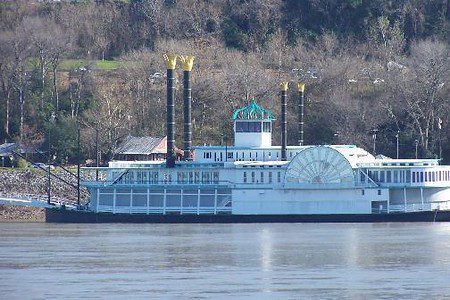
If you’ve watched films such as Maverick , starring famed anti-semite Mel Gibson, or TV shows like Ozark , you will know at least a passing amount about riverboat casinos. They often look like something out of a Mark Twain novel, powered by steam and paddles and are suggestive of a bygone era when you see them floating on the water. In the modern era, of course, they are filled with bright and flashy slot machines that make a lot of noise and ensure that you won’t be expecting Twain to walk around the corner.
The idea behind riverboat casinos was that it would limit the areas in which casinos could be constructed, enabling gambling but keeping it to specifically designated areas. The fact that the boats were seldom taken away from the dock, or even ever taken away in some cases, didn’t change the point that the legal fiction was able to be sold by various authorities. In essence, there is no difference between a riverboat casino and a permanent one on land, with the exception being that boat casinos can get licences to operate where land ones can’t.
The History of the Riverboat Casino
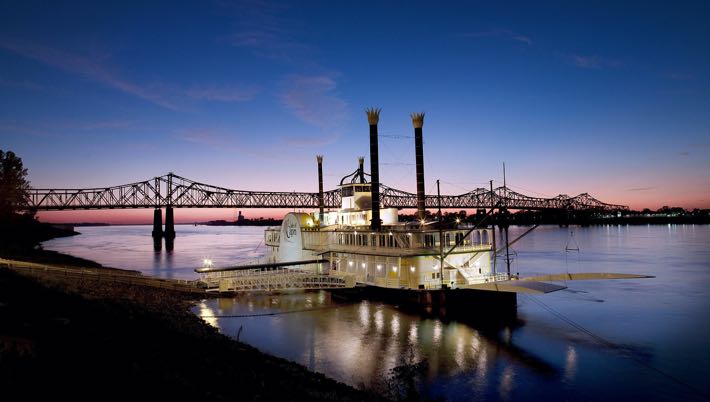
You can’t understand the history of riverboat casinos without first having a sense of the history of riverboats in general. Paddlewheel riverboats were introduced to the Mississippi River and some of its tributaries as a way of transporting passengers and goods during the 19th century. By the 20th century, however, rail had largely taken over as the quickest and cheapest way to get things around the country, meaning that the paddlewheel riverboats needed to be re-invented as something else entirely. This was when they began to be used as floating casinos.
Entertainment for Long Voyages
Of course, gambling and sailing has a long history. Voyages by sea are long and tedious, with ships in the past lacking the entertainment options that you would expect to find nowadays. So it is that sailors and passengers would often engage in games of chance whilst taking part in a long voyage. As life in the United States of America reached a degree of normality in the wake of the American Civil War, riverboats began to be used as a way of enticing gamblers to places where they would otherwise have nowhere to go.
Legal Loopholes
States had widely prohibited gambling in the US by the start of the 20th century, which is why those looking to gamble sought legal loopholes. States began to approve the use of riverboats, especially in ones that had frontage along the Mississippi. It was for this reason that the likes of Illinois, Louisiana, Indiana, Missouri and Mississippi itself began to allow a limited number of riverboat casinos to be opened, attracting gamblers that wouldn’t be allowed to place a legal bet on land in those same states, save for on Native American Reserves.
City of Traverse
The first riverboat casino, the City of Traverse , set sail on Lake Michigan in 1904. The Big Muddy, as the Mississippi River was known, bordered several different states, which made it something of a legal grey area. It was for this reason that Senator Lyndon Johnson helped to draft the Transportation of Gambling Devices Act in 1951. That made it a crime to transport gambling decides over state lines, unless it was legal at the destination. It didn’t stop all riverboat casinos, but it made it trickier for some of them.
What Riverboat Casinos Offer
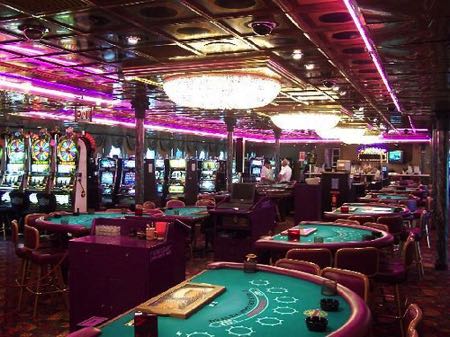
As with casinos on land, riverboat casinos offer different things to customers based on numerous different factors. If a riverboat casino has discovered that very few people in the area enjoy playing poker, for example, then they are going to be unlikely to actively offer a poker room. Similarly, if it is discovered that people heading to one riverboat casino aren’t playing slots, then slot machines will be limited in number. As with land-based casinos, it is the customer that dictates what is and isn’t offered by a riverboat casino, wherever it is located.
That being said, there are some things that you can expect to enjoy at most riverboat casinos. Table games are always popular at such venues, meaning that the likes of roulette, craps and blackjack are commonplace. Equally, slots are usually good money makers for any casino, so a floor that is dedicated to such electronic forms of gambling isn’t unusual. Whilst card rooms for poker games and so on aren’t always found, they also aren’t unusual. In short, if you want to do something specific, it’s worth finding out if the riverboat casino you’re heading to offers it before you get there.
Do They Have to Be Sailing for You to Gamble?
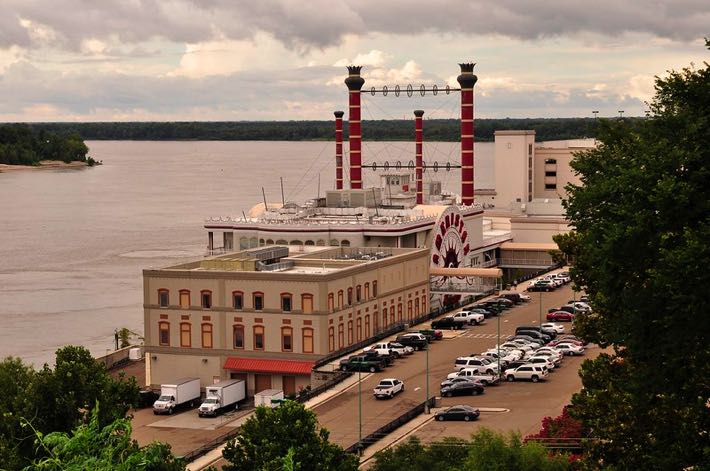
Now that we know a little bit more about riverboat casino and their origin, it is worth asking the question about whether or not they need to be gambling in order for you to be able to place a bet. The short answer is: it depends. Each state has its own rules and regulations around how riverboat casinos have to work, which includes whether or not they need to be sailing for betting to be legal. In the majority of cases, the rule of law states that the casino has to be ‘solely over and in contact with the surface’ of the river it is on.
What this means, in essence, is that the main bulk of the riverboat casino has to be in the water. It can be connected to land by something like a bridge, but it would need to be able to sail away if required to do so by the licensee. To put it another way, in most states, it couldn’t be a building built on the docks or on the side of the river in order to be a legally licensed casino. Instead, it needs to be in a situation where the majority of the vessel is in the water and only a method of getting on board is allowed to be on the nearby land.
The Curious Case of the Potomac River
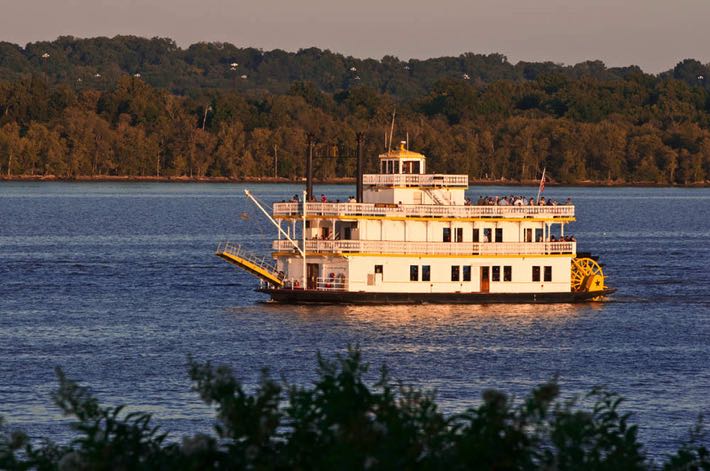
The interesting thing about riverboat casinos is that they regularly end up being in fascinating situations. This is perhaps best demonstrated by the tale of the Potomac River, which is on the state border of Maryland and Virginia. In the middle of the 20th century, there were several riverboat casinos docked off the coast of Virginia, even though gambling wasn’t legal there. The border between the two states isn’t the middle of the river, but rather at the low water mark on the Virginia side of it, confusing things.
The result of the state border being where it is is that, with the exception of a small part of the river that is in the District of Columbia, the majority of the river is technically in Maryland. For this reason, punters could drive to Virginia and park there before walking onto a riverboat casino, at which point they had crosses state lines and were in Maryland. They were then able to gamble entirely legally, all whilst within virtual touching distance of a state where it would have been illegal to have been doing exactly the same thing.
The Riverboat Casinos That Pushed Their Luck
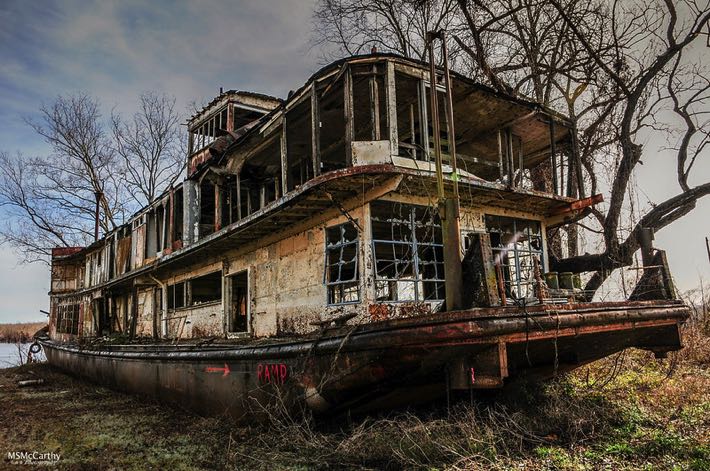
In 1994, it was decided by voters in Missouri to allow ‘games of chance’ to take place on the Mississippi River and the Missouri River. Four years later and the state Gaming Commission believed that just three of the 16 such casinos operating in the river were ‘clearly on the main river channel’. As several casinos had actually been located on riverboats that were in an area with water that was adjacent to the river, such as a lock, it was felt by those that were against gambling in the state that they should be shutdown.
By that point, however, the state had realised just how much was being brought in thanks to tax on the $652 million industry. The state was entirely unwilling to give up the revenues being generated by the riverboat casinos, so over a period of time the rules were relaxed. It got to the point that casinos were allowed to be built on stilts, with the only proviso being that they had to be over water that was navigable. This meant an end to the practice of ‘ Boats in Moats ’ that the area had become quietly quite famous for.
When Hurricane Katrina hit the US in 2005, many of the riverboat casinos were destroyed entirely. The casinos themselves, as well as the hotels and restaurants that adjoined them, were left devastated. What resulted was a decision from many states to change their regulation on the matter, allowing casinos to be built on land as long as they were within certain geographical limits close to a navigable waterway. Since the hurricanes the majority of Mississippi’s riverboat casinos have been rebuilt with far more solid foundations.
Riverboat Casinos & Native Americans
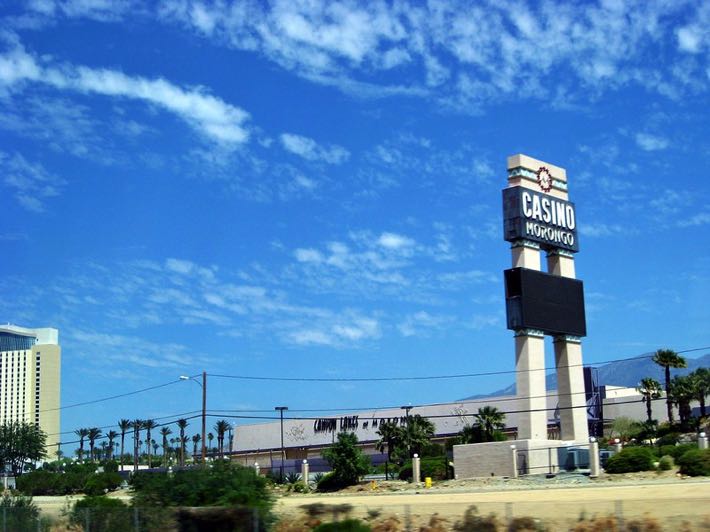
It might seem strange, but those that love riverboat casinos actually owe a debt of thanks to Native Americans. Towards the end of the 1980s, the case of California v. Cabazon Band of Mission Indians ended up in front of the Supreme Court. The state of California believed that the games of poker and bingo that were taking place on the land of the Cabazon Band of Native Americans violated state law. The Native Americans, unsurprisingly, disagreed, believing that tribal land fell under civil regulatory laws, not the lawful jurisdiction of the state.
The Supreme Court found that California’s state lottery meant that gambling was not prohibited as a criminal act, meaning that the authority to regulate any gambling actives on tribal lands fell outside the powers that were granted by the Public Law 280 ruling. This had lasting impact for Native Americans around the sovereignty of their land, including the fact that states could not impose regulations on reservation gaming. Instead, gambling in Native American land could only be questioned if it was in a state where gambling was considered criminal according to the state laws.
This led to an explosion of legalised gambling in states throughout America. The result of this was that states wanted to get in on the act, hoping to open casinos that would allow them to make money whilst limiting the influence of organised crime. The result of this was that riverboat casinos sprang up in places where the geography allowed it, ensuring that most of the new venues owed a lot to the Native Americans that had pursued the right that they believed they had to gamble legally on their own land.
Curious Things About Riverboat Casinos
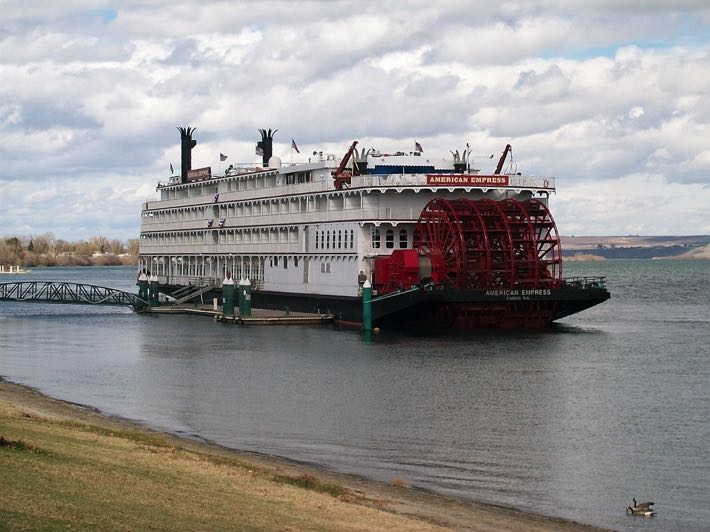
There are numerous different facts about riverboat casinos that are interesting and worth knowing. For example, many historians believe that vigilantes would take the law into their own hands when cheats were found to be operating on riverboat casinos. In 1835, a group of five such cheats were lynched in Vicksburg in the state of Mississippi after having been discovered. Also, when riverboat gambling was first legalised in Louisiana, any vessels operating out of the state had to look like a 19th century paddleboat.
By 2018, there were 63 riverboat casinos operating across the six states where it was legal for them to do so. That year, Illinois took $382.5 million in state tax, whilst it was $152.1 million in Missouri. In terms of examples of riverboat casinos, there is perhaps none as impressive as the American Empress, which is diesel-powered and stands at 360 feet in length. As well as the casino on board, there are also artefacts from the Gold Rush, Russia and Native Alaska, making it a floating museum, as well as a casino.
Main Navigation
A History of Riverboats in Mississippi
The mighty Mississippi river stretches from Northern Minnesota to the Gulf of Mexico. The second-longest river in the United States, the Mississippi is integral to the history of America — particularly in the state of Mississippi. Riverboats facilitated travel, commerce, and cultural exchange within Mississippi and beyond. Learn more about the impact of Mississippi riverboats in this post from Visit Mississippi .
Riverboats: The Early Days
While people have navigated the waters of the Mississippi River for centuries, steamboat technology was not viable until the early 1800s. The first steamboat to travel the Mississippi was the New Orleans, whose October 1811 maiden voyage began in Pittsburgh, PA, and ended in New Orleans after traveling along the Ohio and Mississippi Rivers.
The New Orleans stopped in Natchez in December 1811 before continuing to its final port in New Orleans. First established by French colonists and later ruled by the Spanish, Natchez was an important center of trade and cultural exchange.
The Golden Age of the Steamboat
By the 1830s, steamboats existed all along the Mississippi River and its major tributaries. The growth of Mississippi’s riverfront communities, such as Bolivar, Commerce, and Greenville, can largely be attributed to the riverboat trade. Riverboats also brought new settlers to the state, helping to speed up agricultural development in the fertile Mississippi Delta.
Propelled by steam-driven paddle wheels, steamboats could navigate the river more quickly and effectively than barges or flatboats. They carried goods such as cotton, timber, and livestock up and down the river, expanding trade throughout the growing U.S. However, steamboats could be dangerous — the boilers used to create steam could build up too much pressure and explode. Steamboats were also susceptible to hitting obstacles such as rocks or logs, which could cause them to sink. This created a growing industry for a smaller type of riverboat called a “snagboat.” Snagboats patrolled the Mississippi River looking for tree stumps, debris, or other hazards and removing them before they damaged larger steamboats.
Wealthy Mississippians could enjoy leisure travel on a showboat — a riverboat used for theater and musical performances. Showboats were ornately decorated and would announce their arrival at a port by playing music that could be heard for miles.
Riverboats During the Civil War
During the years after Mississippi’s secession from the Union, many steamboats were used to support the Confederate Army. Riverboats carried troops, provisions, and supplies along the Mississippi during the Civil War. Demand for ships was so high that both the Union and Confederate governments chartered steamboats. Riverboats also played a role in the defense of Vicksburg, an important Confederate stronghold that connected the South to the Western states.
Gaming on the River
Riverboat gambling became popular in the early 1900s due to legislation surrounding gaming. By keeping poker, roulette, and other games of chance restricted to a riverboat, business owners could evade the anti-gambling laws that were in effect on land in states along the Mississippi River. Riverboat gaming in Mississippi was legalized in 1993, but unfortunately, Hurricane Katrina destroyed many riverboat casinos. In response, Mississippi lawmakers allowed casinos to move 800 feet inland.
However, you can still find a few riverboat casinos throughout the U.S. In Mississippi, visitors can try their luck at the Ameristar Casino Hotel in Vicksburg , a riverboat-style casino and hotel located right on the water.
Mississippi Riverboats in the Present Day
According to National Geographic, by 1900, the growth of railroads across the U.S. significantly reduced the demand for transporting goods and people via steamboat. Many riverboats were retired, but a few showboats remained as a testament to this period in history.
The popularity of riverboats continues to thrive in the Magnolia State. Today, tourists can enjoy the relaxing and immersive experience of river cruising. These luxury expeditions offer a unique way to travel the Mississippi, where guests can admire the breathtaking scenery along the waterway. First-class accommodations, fine dining, and a variety of things to do can be expected on a luxury tour on the Mississippi. Companies such as American Cruise Line and Viking River Cruises offer a variety of cruises that vary in duration and cities visited, like Vicksburg and Natchez.
Plan Your Trip With Help From Visit Mississippi
If you’re planning a trip to one of our historic riverfront cities like Natchez, Vicksburg, or Greenville — or anywhere else in the Hospitality State — Visit Mississippi is here for assistance.
Plan your next trip to Mississippi using our complimentary trip planner tool that helps you map out all your must-see attractions, restaurants, and lodging options. Whether you’re here for a week or just passing through, you’ll find a wealth of information about Mississippi history and culture on the Visit Mississippi website. For more information, contact us today.
Email Updates
Discover new ways to wander.

Get your free Mississippi official Tour Guide.
- Things to Do
- Places to Stay
- Experiences
- Accessible Travel
- Meetings and Conventions
- Group Travel
- International Travel
- Welcome Home Mississippi
- Mississippi Tourism Partners

Copyright ©2024 Mississippi Development Authority All Rights Reserved. Privacy Policy
Privacy Overview
Search by keyword or phrase.
- CRUISE TIPS
- Carnival Cruise Lines
- Celebrity Cruise Line
- Disney Cruise Line
- Holland America Line
- MSC Cruises
- Norwegian Cruise Line
- Princess Cruises
- Royal Caribbean
- Virgin Voyages
- Windstar Cruises
- Travel Deals
- CRUISE SHIP TRACKER
- Port Webcams

There are various areas of the world that just seem synonymous with gambling. When people hear the name Las Vegas they picture gambling of a flashy, mass entertainment proportion. Macau ’ s gambling culture brings a real Asian flavour to gambling, with many inevitably comparing it to Vegas. Monte Carlo delivers gambling connotations of wealth and prestige. Obviously, it is not just physical areas where gambling has a strong presence, with the web and mobile space being dominated by PartyCasino and other big names in the industry.
Another, yet somewhat less spectacular, sight that can only be associated with gambling is the steam propelled riverboat of certain states in the USA. How did these iconic vessels come to be known for hosting casinos, and what is the current status of riverboat casinos today?
On Water, But Not Land
There is a network of rivers that penetrate inland from the Gulf of Mexico up through the United States, most famously the Mississippi River . In the 19 th Century the rivers provided a fantastic way to transport goods from town to town up and down the bodies of water. This in turn became a popular method of passenger transport, with travellers using the boat to socialise. One of the most popular forms of entertainment at the time was gambling, and therefore this pastime became highly popular aboard the vessels.
There were also, and still are today, laws that prohibited gambling on land. However, the proprietor s of these boats took advantage of the loophole not extending these laws to establishments on water. Even today, riverboats are still to be found on the Mississippi and is still considered one of the best for cruises. Certain rivers acted as state lines, so it was sometimes argued that the gamblers could not be classified as being in one state or another while steaming down a river.
Railroads and War
As mentioned, the riverboats were first and foremost a means of transportation and enjoyed such success due to it being the quickest and most reliable means of travel and delivery of goods. However, when railroads started to spread across the country, they opened up new routes that got people around in a more direct manner. The trains also cut days off travel and therefore started to overtake the riverboats in popularity.
Around the same time the American Civil War broke out, a period where much of the fighting was done in the Southern States which defied the laws laid out by the North. This meant that riverboat entertainment almost came to a complete end.

The Riverboats of Today

Unlike the boats of old, which used to set off on long journeys to various destinations, the vessels of now mostly remain docked and very seldom actually take to the open waters. However, one will still be able to undergo the traditional experience that thousands enjoyed before casinos became what we are familiar with today.

- #RiverCruise

Related Articles
What to pack for an alaska cruise, what is a cruise ship muster drill, is sports betting legal on ships departing from the usa.

Popular Categories
- Oceans 1534
- Cruise News 1307
- Cruise Tips 343
- Carnival Cruise Line 342
- River Cruises 229
- Royal Caribbean 174

© Copyright 2024 - Cruise Addicts
- Affiliate Disclaimer
- Privacy Policy
Casino Player Magazine | Strictly Slots Magazine | Casino Gambling Tips

- Caribbean Stud
- Sports Betting
- Three Card Poker
- Online Gaming
- Video Poker
- General Gambling Tips
- Player's Club
- Money Management
- Monthly Entertainment Guide
- Entertainment News and Headliner Interviews
- Where to Play
- Casino Player
- Strictly Slots
- Subscriber Services
- Print Advertising
- Digital Advertising
- Website Advertising
- Certified Loose Slots Program
- Best of Awards
- Employment Opportunities
Rolling on the Rivers – Riverboat Casino
Editorial Staff | Posted on April 10, 2010 |
After 15 years of evolution, riverboat casin o s have become resort destinations in and of themselves
By frank legato.
Consider the term “riverboat casino.” These days, the term conjures up images completely different than when the modern riverboat gaming industry was inaugurated in Iowa some 15 years ago. Back then, riverboat casinos were little more than a means of bailing out state budgets—of clearing red ink in government ledgers without raising taxes.
The idea was to use gambling to raise money, but to restrict it to waterways¬. To distinguish them from “real” casinos, as existed only in Atlantic City and Las Vegas, they would be kept from land, thereby saving “respectable” people from the specter of gambling in their neighborhoods. To give them charm and appeal for gamblers, they would recall the times of Mark Twain, designed as replicas of legendary 19th century paddlewheel steam riverboats on which frontier characters played draw poker while floating lazily up and down the Mississippi River.

Riverboat casinos, once viewed as a necessary evil to communities in which they were legalized, grew to be vital parts of those communities, providing jobs and economic revival to depressed areas, and donating millions to local charities. For the people who played there, the vessels became hot regional destinations, providing escapes for drive-in customers and great gambling deals for the locals.
Anthony Sanfilippo, president of Harrah’s Entertainment’s Central Division, has been operating in the riverboat market since the early days. He has been with Harrah’s for nine years, and he says the past decade has seen changes not only in the way players see riverboat gaming, but in the way communities see the casinos.
“The main difference today is the acceptability of gaming in communities that were considered new jurisdictions 10 years ago,” Sanfilippo says. “Ten years ago, gaming was stereotyped—from movies, mainly—and communities didn’t have an understanding of their economic impact in the local community and state, as well as the ability to bring a whole new type of entertainment experience into their community.”

Those two vessels would eventually grow into what is now Isle of Capri Casinos, Inc., but first, Goldstein faced quick competition, both in Iowa and across the river in Illinois. The biggest threat to those first riverboats, though, was Iowa’s own gaming law, which imposed a limit of $5 per bet and a “loss limit” of $200 per person, per cruise. With boats required to cruise during the warm months, that meant if a customer lost $200 in the first half-hour of a two-hour cruise, he was stuck doing nothing for the other hour and a half.
Nearby states were quick to pick up on the fact that gamblers were looking for less restrictive rules. In September of 1991, Illinois launched its riverboat gaming market, with no bet restrictions or loss limits. The following year, Goldstein moved his two original boats to the Gulf Coast to become the first to open in Biloxi with his renamed Isle of Capri casino. Not only did Mississippi allow casinos to operate without betting restrictions; there was no cruising requirement. Vessels were permanently docked, and—for better or worse, as we now know—most were built on barges directly on the water, forming what were essentially floating land-based casinos.

The first riverboat casinos made money through what is known in the trade as “convenience gambling,” meaning people went there solely because it offered gambling close to home. The ability to gamble without traveling to Las Vegas or Atlantic City made up for the fact that typically, one would find slots and table games cramped on several levels of a paddlewheeler. Little comfort, lots of action.
However, as with most forms of entertainment, increased competition ultimately led to better offerings, larger facilities, and a wealth of choice for the player. This was aided by the fact that the Indian gaming market was launched at essentially the same time as the riverboat market. Racinos were not far behind; nor were new land-based commercial casinos in markets like Detroit. Riverboat casinos could no longer afford to be convenience gaming outlets. They now had to compete for their customers with a collection of gaming choices that was not even on the radar of the visionaries who started riverboat gaming in the early 1990s.

Many of the older multi-level paddlewheel riverboats were replaced by massive single-level vessels with as much casino space as many traditional land-based casinos. Riverboat gaming operators expanded landside entertainment and dining complexes, added hotels, and built golf courses.
Riverboat casinos were no longer cramped vessels where gamblers put up with crowded conditions and discomfort for the sake of laying down a bet. They were resorts.
Evolution of the Offering Sanfilippo of Harrah’s says he has watched the riverboat market grow from gambling joints into full-blown destination resorts. “Early on, the experience was centered around pure gambling, with some food offerings,” he says. “Over 10 years, we’ve seen an evolution of our offerings. For example, at our Horseshoe Hammond, we are under way with a complete renovation that will transform the property.”

While many improvements and expansions have been made to the landside dining and entertainment facility, the multi-leveled vessel itself had little room for improvement. The $485-million makeover of Horseshoe Hammond will replace that vessel with a huge riverboat placing all gaming on one level. On the second level of the new boat will feature a state-of-the-art entertainment venue, two celebrity chef restaurants and a 2,500-seat buffet. New shore-side facilities will include Diamond and Seven-Star Lounges for top players. The expansion will be complete in the summer of 2008.
Horseshoe Hammond’s new facility will demonstrate something that has become common over the evolution of the riverboat gaming market: Riverboats these days are destinations, in and of themselves, and they are viable alternatives to the plane trip to Las Vegas or the larger land-based casinos of Atlantic City or Connecticut.
“The (riverboat) markets have evolved to where the non-gaming aspects of the properties are much more important,” says Wade Hundley, president of Pinnacle Entertainment, the Las Vegas-based company that operates two of the most elaborate riverboat properties in the nation, Belterra in Indiana and L’Auberge Du Lac in Lake Charles, Lousiana. “These are entertainment destinations rather than several decks of gaming.”

He adds that at the same time the non-gaming amenities have been proliferating, the riverboat markets have maintained the familiarity with their customers possible only in locals markets. “The riverboat properties will give you more personal attention than many Las Vegas properties,” says Hundley. “Your personal relationship with employees is much more evident, because Las Vegas tourist properties may see customers a couple of times a year, where in regional markets, you see them much more often.”
Hundley predicts that the riverboat market will continue to evolve along the lines of offering the best in non-gaming entertainment and pampering to go with the gaming experience. “Our company believes in building world-class destination resorts,” he says. “That’s the type of property that will be successful in the future. You want to be able to get a free spa visit or a steak dinner, and play a round of golf. People can get these things in Las Vegas, so you have to offer the same kinds of amenities—and they can get them without having to go to an airport, go through security, and go through all the other hassles that come with traveling far away.”

Tourism based on gaming entertainment—it’s a concept that once was confined to markets such as Las Vegas and Atlantic City. Nowadays, the Midwest riverboat markets offer an experience that is, in the end, worth the trip.
The Gems You will, in fact, find something worth the trip in each riverboat region of the country. Here are a few of the gems to be found in each of the riverboat states:
Iowa Much of the first riverboat gaming market remains as it was when it launched the industry in the early 1990s. While they can now remain docked and can operate without the silly betting restrictions, most of the 10 Iowa riverboats are still simple and small.
The exceptions to this rule are obvious every year when we do our “Best of Gaming” survey. Iowa’s two “category-killer” riverboat casinos are in Council Bluffs—Ameristar and Harrah’s. Over in Bettendorf, Isle of Capri’s second Iowa entry is definitely worth a visit as well.
Ameristar Council Bluffs This massive paddlewheel-style riverboat features around 38,000 square feet of casino space spread over three levels, with 1,651 slots and 31 table games. A great player’s club offers frequent 4X-point days and cashback on both slots and tables. Ameristar would be a typical old-fashioned riverboat casino, except for all the stuff that goes along with the games, much of it on the shore-side complex: great restaurants, including the much-acclaimed Waterfront Grille for the best steaks in the market; a 160-room hotel including eight beautiful luxury suites, 32 unique “king whirlpool rooms” and great river views; lounge entertainment at two cabaret bars, and headliners at the Amerisports Bar. In short, all the casino comforts in a river setting.
Harrah’s Council Bluffs Similar in style to Ameristar—a three-deck paddlewheel vessel with hotels and restaurants on shore facilities—Harrah’s consistently gets our readers’ nod as the best overall riverboat casino hotel in Iowa. With just over 1,000 slots and around 35 table games spread over three levels, the gaming is comparable to Ameristar, with the added benefit of the Harrah’s Total Rewards national player’s club. Harrah’s also is known for its great 240-room hotel; restaurants such as the 360 Steakhouse and the ’50s-style Ace’s Diner; and the hip Stir nightclub.
Isle of Capri Bettendorf Isle deserves honorable mention in Iowa for the property it built in the location of the property that inaugurated the riverboat market, Bettendorf. While gaming offerings are on par with other riverboats its size (like the Council Bluffs boats, it is a three-level, paddlewheel-style vessel), the adjacent 256-room hotel is outstanding, from its elegant lobby to comfortable standard rooms to the fantastic theme suites.
Illinois Illinois has nine riverboats, with the 10th license still wrapped up in the courts with legal challenges from Emerald Casino, Inc., over the revocation of its license.
The other nine riverboat casinos are mostly smaller properties, with a few large gems. There is still a $5 admission fee, although some properties, such as Harrah’s, have waived it if you flash a player’s club card. The best feature of many—and a large reason for their popularity—is proximity to the city of Chicago. In fact, the four Illinois casinos and five Indiana casinos which are all within an hour’s drive of Chicago, and which form the casino market commonly known as “Chicagoland,” constitute the third-highest-grossing casino market in the country.
Gems on the Illinois side of Chicagoland include Harrah’s Joliet and the Grand Victoria in Elgin, but one other Illinois casino far from Chicago deserves honorable mention—the Casino Queen in East St. Louis, on the Missouri border.
Harrah’s Joliet Located around 30 miles from Chicago, Harrah’s Joliet is casino on a barge docked on the Des Plaines River. During the third quarter of 2001, the two existing riverboat casinos, which had been linked by a “transition barge” after Illinois approved dockside gaming in 1999, was replaced with the single-level, Vegas-style casino. Shore-side facilities adjacent to the casino include a pavilion featuring a lounge and a retail shop, and n 11-story luxury hotel with a fitness center. You will find some of the best video poker in Chicagoland here, as well as great headline entertainment at the Stage 151 concert venue.
Grand Victoria Docked on the Fox River in Elgin, around 31 miles from Chicago, the Grand Victoria is a classic paddlewheeler on the outside, but once inside, you’d never know it. The casino’s spacious single-level interior, housing around 30,000 square feet of gaming space, sports the classic elegance of a high-end Las Vegas-style design. Grand Victoria is one of Chicagoland’s most popular casinos, and our readers consistently vote it Best Casino in the market because of good rules on the table games, great cashback and comps, and the best dealers and hosts in the business. If you go, don’t forget to visit Buckingham’s for great steak.
Casino Queen Across the state from the Chicagoland market in East St. Louis, you will find the casino with the loosest slots in the nation. This classic paddlewheel riverboat with its 27,500-square-foot casino did something last year that no other casino in the nation has been able to do: it unseated the Las Vegas locals casinos for the crown of Loosest Slots in the Nation, returning a remarkable 95.13 percent of all wagers to players, in all denominations. Among the other pleasant surprises here are a first-rate hotel, a great sports bar, and a fantastic steakhouse called the Royal Table.
Indiana There are two distinct markets for riverboats in Indiana—the five casinos on the Indiana side of the Chicagoland market, and the southern Indiana casinos along the Ohio river, which serve the Cincinnati, Ohio, and Louisville, Kentucky markets. In all, there are 10 riverboat casinos, with an 11th on the way in French Lick, to be placed on a man-made lake between two resort towns.
In the Chicagoland area, there is one Indiana choice that stands out above all the others—Resorts East Chicago. In the South, there are three standouts—Caesars Indiana, Argosy Lawrenceburg, and the fabulous Belterra.
Resorts East Chicago Resorts East Chicago, the massive yacht-style riverboat that opened as Harrah’s East Chicago, is the clear choice as the best casino in the Chicagoland market. Harrah’s sold the 53,000-square-foot casino a year ago to Resorts International Holdings, as part of the divestitures associated with its takeover of Caesars. Thankfully, Resorts has not altered it significantly. In our annual reader survey, this property consistently ranks as the best overall hotel casino in the market, along with the best rooms and suites, in the 286-room adjacent hotel.
Caesars Indiana This is one of those riverboat properties which, if seen only from the inside, is virtually indistinguishable from an upscale Las Vegas resort casino hotel. Caesars Indiana is attached to one of the most beautiful hotels in the market, its elegant lobby awash in marble befitting the familiar Roman theme. The riverboat itself, on the 5,000-passenger side-wheel style vessel dubbed Glory of Rome, is the largest riverboat casino in the world, with some 90,000 square feet of gaming space. There is fantastic slot selection, great video poker, and top-notch table games and poker room. You can’t go wrong here.
Argosy Lawrenceburg Another behemoth on the Ohio, Penn National’s Argosy Lawrenceburg casino—the closest to Cincinnati—features some of the best slots and video poker in southern Indiana, as well as another great hotel. It is one of the most popular riverboat casinos in the nation, not only for its games—2,300 slots and 80 tables spread over three levels—but for a promotion-rich slot club that many consider the best in the market.
Belterra And then there’s Belterra. Pinnacle Entertainment’s Belterra property is not as large as its neighbors, but is one of the very best riverboat casinos in the country. The two-tower hotel is twice as large as competing locations, a recent expansion bumping the room count to 608, including 57 luxurious suites. Staying at the hotel gives you access to a package of top amenities dominated by a championship golf course. The casino is just as good: The slot floor stocks the newest games on the market. Table games include five-deck blackjack and 10-times odds on craps. In short, what’s not to like?
Missouri Missouri has 11 riverboat casinos, but there are only two names you need to know: Ameristar and Harrah’s. Ameristar operates top properties in Kansas City and St. Charles, and between those properties and the Harrah’s casinos in St. Louis and North Kansas City, the two operators dominate the market.
Ameristar Kansas City / St. Charles This is a remarkably beautiful dockside casino, its two levels bedecked in gold and elegant trappings. It is a consistent winner of most of Player’s top awards for Missouri in the annual survey—clearly a favorite of players for its hotel, its restaurants, its slots, its tables, blackjack, entertainment and restaurants. As far as Missouri goes, this is the place to be. Ameristar St. Charles, recently refurbished to the tune of $360 million, is not on par with the Kansas City property. By next year, the St. Charles property will add a new 25-story hotel tower housing 400 luxury suites.
Harrah’s St. Louis Harrah’s dominates downtown St. Louis with this huge dockside facility, featuring a total of 120,000 square feet of gaming space. Harrah’s gets high marks for its hotel rooms—including some great room packages—as well as its casino promotions, and of course, the typical Harrah’s service and the ever-present Total Rewards national player’s club.
Louisiana Louisiana has 15 riverboat casinos spread out across three regions—Baton Rouge/New Orleans, Shreveport/Bossier City, and Lake Charles. The two standouts in the state are operated by Harrah’s (which also operates a land-based casino in New Orleans) and Pinnacle Entertainment.
Horseshoe Bossier City When Harrah’s Entertainment acquired the Horseshoe brand a couple of years ago, one of the best properties that came with it was the Horseshoe riverboat in Bossier City. Built by Jack Binion as the first casino in the market, it is a beautifully elegant paddlewheeler with some of the best poker, table games and slots in the state. It is adjacent to a magnificent 606-room, all-suite hotel with some of the best resort amenities to be found anywhere in the riverboat market.
L’Auberge du Lac The newest riverboat casino in Louisiana is also the best. Pinnacle’s L’Auberge du Lac Hotel & Casino is simply gorgeous, its single-level dockside casino only one part of an amazing resort set on 227 acres. Pinnacle has here reprised the formula that worked so well at Belterra, with a 600-plus room, high-end hotel feeding the central feature of the resort—a Tom Fazio-designed, 18-hole championship golf course. As we said with Belterra, what’s not to like?
Rolling on the Rivers – Riverboat Casino.


- Follow us on Facebook
- Follow us on Twitter
- Follow us on YouTube
- Follow us on Pinterest
- Connect with us on LinkedIn
- Subscribe to our blog
- Cool and Unique Jobs (Check them out!)
- Take a Gap Year!
- Alaska Fishing Industry
- On-Demand Delivery Jobs
- Wine Industry Jobs
- Nursing Jobs (High Demand)
- Truck Driving Jobs (High Demand)
- Security Mercenary Jobs
- Becoming a Male Model
- Drone Operator Jobs
- Jobs in the Renewable Energy Industry
- On-Demand Odd Jobs

- Distillery Jobs
- Beach Resort Jobs
- Tour / Travel Gigs
- Pet Sitting Jobs
- Land Tour Section
- Animal Jobs Section
- Working Abroad
- Shared Economy Jobs Section
- Cicerone, Beer Sommelier Jobs
- Teaching / Tutoring / Coaching Gigs
- Backpacking Trip Leader Jobs

The Growth of Riverboat Casino Gambling
Currently, only a handful of states allow gaming parlors and casinos on riverboats. Most operate on the Mississippi, Ohio, and Missouri Rivers. The first state to reintroduce this type of gambling facility was Iowa in 1989, when legislators passed a law permitting riverboat casinos under certain circumstances. According to this measure, gambling in Iowa may occur only on historic or modern riverboats, making cruises on the Mississippi River lasting a specified period of time (usually an hour and a half). Slot machines and table games are allowed.

In Illinois, the second state to authorize riverboat gambling, casino patrons may also board riverboats making regularly scheduled runs; however, they must wait until the boats are fully underway before engaging in gambling activities. Games allowed include blackjack, craps, roulette, and big six. Slot machines and video poker also are permitted. Illinois riverboat casinos , all of which must charge a boarding fee to their customers, have the potential to be very plentiful , as they may cruise on any number of major rivers, including the Mississippi, Des Plaines, Ohio, and Illinois. Casino operators here have also been very successful in presenting Las Vegas – style entertainment, generating even more customer traffic. At the industry’s peak more than 10,000 new jobs were created in Illinois after the legalization of gambling on riverboats, with an estimated yearly payroll in excess of $250 million.
As a legislative condition for riverboat gambling in Mississippi, the state requires that each county first decide whether or not to approve it. Several counties – Adams, Claiborne, Handcock, and Tunica – were among the first to give the green light to riverboat gambling. It’s probably no coincidence that these counties were at the time also four of the poorest in the state. Mississippi riverboat casinos differ from those in other states in one major way: They must be permanently docked. Rather than based on boats, shipboard casinos sit on stationary barges, connected to land by gangplanks. Often this set-up allows more space to be devoted exclusively to gaming activities than on traditional riverboats. In fact, Mississippi at one time ranked second in the world in terms of casino space. Both slot machines and table games are permitted, and whereas other state governments limit the total number of riverboat casinos allowed to operate within their states, Mississippi provides unlimited licensing.
Two areas in Mississippi that initially struck it rich through the reintroduction of legalized gambling are the Biloxi/Gulfport region and the tiny towns of Tunica and Robinsonville in Tunica County. Both have several major casinos, including big-name operators such as Circus Circus, Sam’s Town, and Harrah’s.
In Louisiana legislators determined that while gambling would be permitted, it could only be conducted on fully operational ships of at least 120 feet that have the appropriate historical look of the nineteenth-century paddleboats. Modern models lacking the appearance of vintage paddlewheelers would not qualify as a legal venue for gaming activities. In addition the riverboats must make regularly scheduled runs and be large enough to hold at least 600 passengers. Currently the maximum number of riverboat gaming casinos allowed in Louisiana is fifteen. However, the city of New Orleans recently received a special waiver from the state legislature allowing a limited number of land-based casino operations there. Look for this city to quickly add new casino operations now that the legal framework is in place.
Passengers hoping to do a little gambling on Indiana riverboats should be prepared for a long time out on the water. Boats offering gambling activities must cruise for approximately four hours. (Of course, employees as well had better be ready to spend a considerable amount of time away from dry land.) The state also allows passengers to gamble thirty minutes before and after the actual cruise. Indiana gaming riverboats may be either historic or modern vessels of at least 150 feet, accommodating a minimum of 500 passengers. All types of table games and slot machines are allowed.
The last state (so far) to legalize riverboat gambling has been Missouri. Both modern and historical riverboats may qualify for gaming licensing. However, there has been much debate in the state as to what gaming activities actually should be allowed. The Missouri State Supreme Court ruled that games such as blackjack and poker may be permitted because they involve a measure of skill and not just luck, whereas slot machines and other specialty table games are prohibited because winnings depend primarily on luck. Even with these seemingly restrictive regulations, over twenty-five casino operators have filed for licensing with the Missouri Gaming Commission. Expect many to begin operating soon, if not already.
- Subcribe to our blog
A former photographer, Jonathan has written extensively about the gambling industry over the last few years. Though perfectly happy chatting at a gaming trade show or lounging in the casino, his favorite place is on a motorcycle with his trusty hound, Yol...
- Riverboat Gambling: A Taste of the Past /
Riverboat Gambling: A Taste of the Past
- September 24, 2020 04:34PM
- September 24, 2020
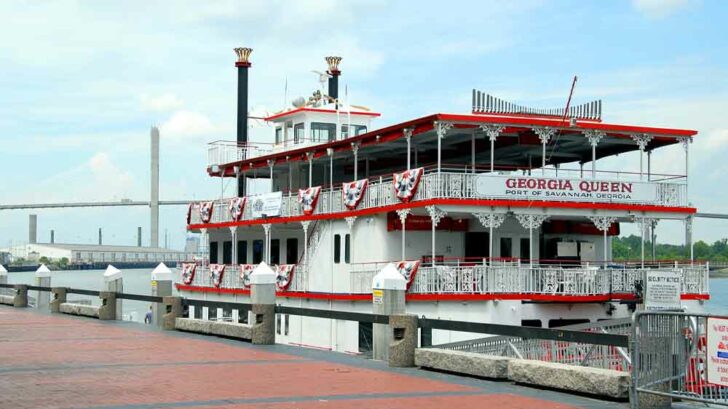
Introduction: Riverboat Gambling
Have you ever been riverboat gambling? We’ve all seen the old photos of these majestic looking paddle steamers making their way up the Mississippi River. In fact, it’s probably considered an image that pretty much sums up the golden age of the Wild West, once it was tamed. But things have moved on a bit since those days of gun-toting cowboys and Stetsons. Though gambling may have advanced in some areas, like the internet, it doesn’t necessarily follow that this holds true of every state in the US. For example, did you know that some states still require that all gambling takes place on a riverboat? Sounds crazy…so let’s have a look.
The Wild Midwest
The origins of riverboat gambling are pretty straightforwards. As the West was expanding, many merchants had to travel considerable distances in order to both maintain and find new business. Back in the 1800s, they made use of the extensive waterways that zigzagged across the eastern seaboard to the mid-west. so traveling by boat was the norm. Unfortunately, this form of travel is also exceedingly time-consuming.
Essentially we had a bunch of rich folks, with lots of time on their hands, and all stuck on a boat. So it’s no surprise that riverboat gambling quickly became the best method to pass the time. And of course, the smell of easy money brought professional gamblers to the party. Soon any number of shady characters could be found gambling on these boats. But laws were changing, and many states were actively outlawing all forms of gambling. At the same time, there were a great many people complaining about the card sharps. Soon lynch mobs sprung up to dish out “justice” to card cheats. It was all getting out of hand.
Riverboat Gambling: Caught In The Middle
So, with the police on one shore and the lynch mob on the other, it’s no surprise that riverboat gambling felt a lot safer whilst remaining on the waterways. These boats gave an opportunity to the very best card sharps to practice their trade with impunity. But times were a-changing, and it was only a matter of time for things to change thanks to the introduction of the railroads. Overnight, the riverboats became redundant for traveling purposes. But the story doesn’t end here.
States are always on the lookout for means of raising their own taxes. And all states were looking westwards and seeing the sheer amounts of cash pouring into the coffers of the State of Nevada, thanks to it’s relaxing of gambling laws allowing all types of jackpot games . And so, it only natural that they too, wanted some of that action. So states that were on the Mississippi River began to think again about utilizing those paddle steamers as floating gambling casinos. This would create an important source of additional state revenues. So, with the stroke of a pan, laws were changed and those boats were recommissioned. Well not quite.

Modern Riverboat Gambling Casinos
The thing is that though they might be called riverboat gambling casinos, the “boat” bit can be a bit misleading. Often they really have nothing in common with a real boat. Most of them are just floating structures, which happen to be parked on the waterway. They do appear to be floating, but we wouldn’t be surprised if they were not built up from the river bed itself. When these new riverboats first appeared, it was when the idea of gambling once again was starting to take it’s first baby steps. As a result, gambling laws were extremely restrictive. Most boats had a $5 betting limit and there were rules as to how much a guest was allowed to lose on a single trip.
But the 1990s saw a major change in gambling laws. Things became more relaxed and as a result, revenues increased for casinos, which in turn led to states gaining more as well. As of today, riverboat gambling casinos to win the jackpot operate in 6 states, Louisiana, Mississippi, Iowa, Missouri, Indiana, and Illinois. But that doesn’t mean that they all follow the same laws. For example, in Louisiana, all casinos must actually look like the old river paddleboat steamers and have their own engines. Then again, not all river states have even joined the gambling party. So Kentucky, Arkansas, Wisconsin, Tennessee, and Minnesota have no river casinos at all. It’s really strange that voters wouldn’t want the extra income that gambling brings.
Riverboat Gambling: Boosting Local Economies and State Budgets
It goes without saying that riverboat gambling had has a positive impact on both local level and state budgets. For example, in Indiana, all casinos have to pay a 20% state tax. Of this, 15% goes to the state and the other 5% remains in the local community. Just so there’s no doubting the numbers involved, this translates to a staggering $400 million to the state and $80 million locally. In fact, more tax money flows into the state from riverboat gambling, than from any other source. And it, not only tax money that’s important. These huge floating monstrosities need workers. They need to hire dealers, waitresses, accountants and security, and more.
And the vast majority of these workers are going to be people who live locally. As a direct result, this increases the amounts of money going into local communities, as workers are spending salaries in shops and stores where they live.
King Billy Casino Welcome Bonus
151% match bonus up to €500 + 51 bonus spins, when winstar came to thackerville.
A great example of this effect would be what happened in Thackerville. This was a quiet backwater of a town with few inhabitants and just the river flowing slowly by. it’s the type of young that young people look forwards to escaping from as soon as high school is over. But then WinStar World Casino decided to plonk a massive riverboat gambling casino there. Before you could say “bingo”, Thackerville was suddenly on the map. The casino started to instantly pull thousands of tourists in from all over the adjoining states. Not only that, but it created literally thousands of jobs. The town had gone from being a sleepy village into a bustling town in less time than to spin a roulette wheel.

Our Favorite Riverboat Casinos
Sam’s town – shreveport, la.
This casino is familiar to all gamblers who go to Las Vegas. In fact, it’s been a gambling institution for many years now. It’s situated on the shores of the muddy Mississippi River. It has all the luxuries you’d expect from a historic casino in Vegas. There’s a spa for relaxing in after a hard day at the slots. These, by the way, are all joined together to create a local progressive jackpot of around $80,000.
Casino Queen Marquette – Marquette, IA
If you’re not a high roller, but want the high roller experience, then look no further than the Casino Queen. This is a relatively small casino floating on the Mississippi. There are just 8 gaming tables, which is tiny when you think of even the smallest venue in Las Vegas. But what they lack in table games, they certainly make up for with jackpot slots machines. There are a staggering 1,100 machines to choose from. But the main feature that makes the Casino Queen so outstanding, is the staff. You’ll be hard pushed to find a more courteous and helpful staff as they have there. The level of service is second to none.
The Grand Victoria Casino – Elgin, IL
Just a short 40-mile drive going west out of Chicago, and there you’ll find the Grand Victoria Casino Elgin. A medium-sized venture, it has 36 games tables. And a whopping 1,000 slot machines to help increase your jackpot winning chances . But the casino isn’t just famous as a riverboat gambling venue. The owners place great emphasis on giving back to the community via various outreach programs. In fact, this being the highest-grossing casino in the state, it still manages to give away a huge part of it’s profits to the surrounding communities. So, if you happen to be playing there, be happy in the knowledge that part of your losses is going to good causes.
Conclusion: Riverboat Gambling
By their very nature, riverboat casinos can’t compete when it comes to the level of luxury found in land-based casinos. But what they don’t have in glitz, they certainly make up for with charm. And that’s a timeless old-world charm that’s hard to duplicate. Though these river paddle boats don’t actually move (thought here are some that do), there’s still a decidedly old fashioned feeling from gambling on the river. We suggest that they’re great to visit and play in, if nothing but for the change and the experience from your regular land-based casinos. You’ll be glad that you did.
Click here to visit King Billy Casino for fun-filled games!
About the Author
// More From jonathan

How To Find Gambling Success With Development Philosophies

The Top Most Exciting Horse Racing-Themed Slot Games

A Complete Guide To The Tour De France

Can Adult-Centred Las Vegas Ever Be Family Friendly?

Japan’s First Casino Get The Go Ahead In Osaka

A Complete Guide To Winning The Lottery Online
// Recommended by Experts

1xBET Sportsbook

King Billy Casino

20Bet Sportsbook

Tsars Casino

Bet365 Casino
// latest promotions.

Poker Episodes 2024 at Betsson: Win Up to €1,500,000

Jack of All Trades at Betsson: Win More Than €100,000

22BET Casino Crash Lottery Offer: Play the Games and Win Big
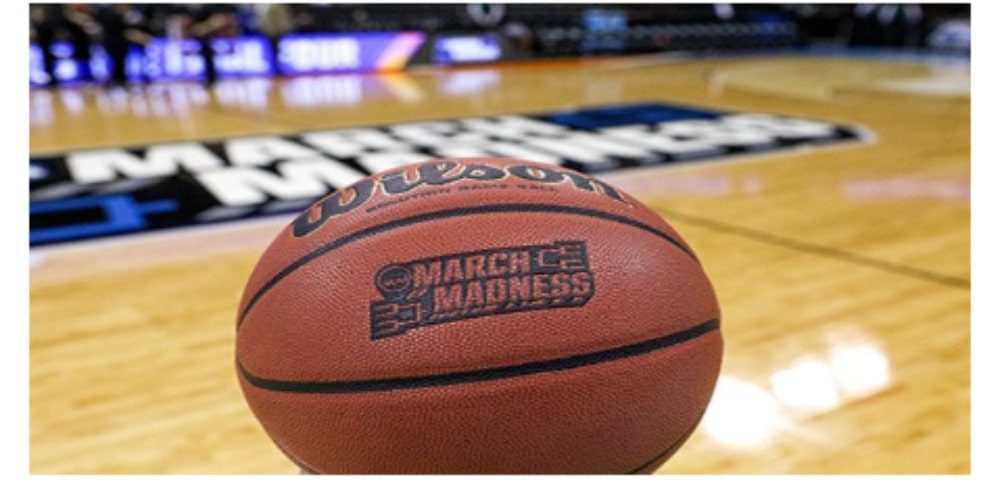
Everygame Poker March Madness Extravaganza: Win Up to $5,000

Miami Tennis Bonus Back at Betsson up to 100 Euros

The most comprehensive and authoritative history site on the Internet.
Gambling in the Old West
As towns sprouted in the 19th-century American West — outside Army forts, at river crossings along wagon trails, in mining districts and at railheads — some of the first structures built were recreational facilities. Recreation for the almost totally male population inevitably meant the triple-W vices of the frontier: whiskey-drinking, whoring and wagering.
Saloons, brothels and gambling halls would appear almost overnight. In the early camps, the structure might be only a lantern-lit, dirt-floored tent, the bar simply a board stretched between two whiskey barrels, the prostitution facility just a cot in a wagon bed for the use of a single female strumpet, and the gambling outfit only a rickety table, a few chairs and a greasy, dog-eared deck of cards. As the towns grew and prospered, these primitive facilities were replaced by one-story wooden buildings with false fronts to make them appear even larger. And if the community developed into a city, saloons were housed in imposing brick buildings with ornate bars, huge back-bar mirrors and brilliant chandeliers. Some brothels became elegantly furnished parlor houses with attractive ‘boarders’ managed by madams whose names were famous throughout the West. The best-known sporting men of the West presided over and patronized gambling houses that were often the most impressive and elaborately accoutered structures of the cities.
The popularity of gambling in the West can be attributed mostly to the fact that all who left the relative safety and comfort of the East to seek fame and fortune on the frontier were, in a sense, natural-born gamblers. In the early West, gambling was considered a profession, as legitimate a calling as the clergy, the law or medicine.
During the 25-year period prior to the Civil War, gambling flourished in the towns along the Mississippi from New Orleans to St. Louis and was a staple attraction on virtually every riverboat. This golden age of gambling produced some of the most memorable practitioners of the art — legendary professionals like Charles Cora, J.J. Bryant, Jimmy Fitzgerald, John Powell, Charles Starr and Napoleon Bonaparte ‘Poley’ White.
One of the popular gambling games of the 19th century was a bluffing game that evolved into American poker. Another, vingt-et-un (twenty-one), introduced into the United States through the predominately French community of New Orleans, we now call blackjack. Still another was Mexican monte. But undoubtedly the most popular gambling game in the West was faro, which drew its name from the Egyptian pharaohs depicted on the back of the cards.
The foremost faro player on the Mississippi was Italian immigrant Charles Cora. After winning $85,000 and breaking several faro banks in New Orleans, Vicksburg and Natchez during one six-month period, he was banned from many resorts. J.J. Bryant, perhaps the best-known professional gambler on the lower Mississippi, lost thousands to Cora.
Jimmy Fitzgerald and Charles Starr were early standard-setters of the sartorial splendor that became a hallmark of the 600 to 800 professional gamblers plying their trade on the river. Their expensive black suits and boots were offset by snow-white ruffled shirts and dazzling brocaded vests. Ostentatious jewelry advertised the gambler’s prosperity. Huge rings adorned his fingers. A stickpin with a large stone, called a ‘headlight,’ sparkled on his chest. In a pocket of his ‘flowerbed’ vest was an enormous pocket watch adorned with precious jewels and attached to a heavy golden chain that draped across the gambler’s chest.
The discovery of gold in California and the resulting rush of 1849 attracted many of the paddle-wheel and Mississippi River town gamblers to San Francisco, the new El Dorado of the West. By the early 1850s Portsmouth Square, the center of the City by the Bay, was ringed by large gambling houses where the doors never closed and enormous sums changed hands over the tables.
There was the Parker House, originally built by its owner, Robert A. Parker, as a hotel, but quickly converted to a casino as the gambling craze swept San Francisco. A large room downstairs contained three tables for faro, two for monte, one for roulette and a seventh for any other game desired. Professional gamblers paid $10,000 a month for the privilege of conducting their games in this room. A smaller room behind the bar went for $3,500 a month. Jack Gamble, an appropriately named sporting man, leased the entire second floor for $60,000 and outfitted all the rooms for games of chance. It was estimated that at the peak of the California Gold Rush upward of half a million dollars was stacked on the tables of the Parker House on any given day.
Flanking the Parker House on either side were two other famous resorts, Samuel Dennison’s Exchange and the El Dorado Gambling Saloon, owned by partners James McCabe and Thomas J.A. Chambers. Other houses on Portsmouth Square were the Verandah, the Aguila de Oro, the Bella Union, the Empire, the Arcade, the Varsouvienne, the Mazourka, the Ward House, the St. Charles, the Alhambra, La Souciedad, the Fontine House and the Rendezvous. As indicated by the several French names, some of these establishments were owned and operated by gambling syndicates from France, a country long known for its love of gaming.
As mining camps sprang up and grew in the hills surrounding San Francisco, the gamblers followed. Soon elaborate temples devoted to the goddess Chance were running day and night in Sacramento, Columbia, Nevada City and other Sierra boom towns.Among the former Mississippi riverboat gamblers who gained prominence on the California scene were Cora and Bryant. In San Francisco Cora continued to enjoy remarkable success at the faro tables, but luck completely deserted him after he resolved a difficulty with U.S. Marshal William H. Richardson on November 18, 1855, by shooting him to death on a San Francisco street. Shootings and stabbings were common occurrences in the city, and had this murder been committed a few months earlier Cora might have escaped punishment on the ancient claim of self-defense. But violence had reached such proportions in the city that residents were calling for reorganization of the Vigilance Committee that had been so effective against the criminal element in 1851. In that year vigilantes had executed or banished from the city many miscreants, and now, five years later, they felt another no-nonsense cleansing was called for. They tried Cora, found him guilty and on May 22, 1856, hanged him from the roof of their headquarters building.
Bryant’s California fortunes were better. After his arrival, he had purchased the Ward House, refurbished and renamed it the Bryant House, and soon became one of the most prosperous and influential men in San Francisco. In 1850, when the first election for sheriff was held in the city, he ran for the office. Although he spent $50,000 on his campaign and bet another $10,000 that he would win, he was defeated by the popular Jack Hays, a celebrated former Texas Ranger. Bryant sold his gambling house and moved on to the outlying camps, where he was financially successful. By the time he left California in 1854, he had reportedly sent $110,000 in winnings to his wife while maintaining a lavish lifestyle for himself. He resumed his gambling operations in the South and continued to prosper, but at the end of the Civil War he found himself destitute, as his wealth was in worthless Confederate currency. He was reduced to ‘roping suckers’ into a sharper’s crooked game. One of the suckers took offense and in 1868 shot him dead.
With the 1860s came the great mining excitement of the fabled Comstock Lode in Nevada. Most of the gambling activity in the Comstock was centered in Virginia City and nearby satellite communities. As in San Francisco, gambling houses dominated the main streets of the new towns. At the height of the boom an agent of the U.S. Geological Survey, studying recreational opportunities in Virginia City, found that the town of 18,000 had a gambling house for every 150 inhabitants. The best known of the many resorts in Virginia City was the Gentry and Crittenden Gambling Saloon, which featured a no-limit faro table presided over by the famous dealer Hamilton Baker. Other houses of note were Tom Peasley’s Sazarac, named after a new cocktail introduced by Julia Bulette, the queen of the town’s red-light district; the Delta Saloon, owned and operated by Jim Orndorff and Jack Magee; and Tom Buckner’s Sawdust Corner. Other prominent gamblers of Virginia City in its heyday were James ‘Kettle Belly’ Brown, Matt Redding, Jesse Bright, Gus Botto, Billy Dormer, Tom Diamond, Miles Goodman, Joe Dixon, Ramon Montenegro, Grant Isrial and Joe Stewart.
Gold Hill and Carson City were also outstanding towns for the sporting element during the Comstock bonanza years. The undisputed top man in the game at Gold Hill was William DeWitt Clinton Gibson, who was later elected to the Nevada Senate. The Headquarters, the Magnolia and the Occidental were all first-class gambling halls in Carson, and the leading sporting men were Vic Mueller, Tump Winston, Henry Decker, Gus Lewis, Mark Gaige and Adolph Shane. Dick Brown ran two establishments — the Silver State Saloon on the divide between Virginia City and Gold Hill, and the Bank Exchange in Carson City.
One of the most important events of the late 1860s was the completion of the transcon-tinental railroad. As the Union Pacific snaked across the Great Plains to meet the Central Pacific in its historic linkup at Promon-tory, Utah Territory, on May 10, 1869, it produced a number of end-of-track towns that collectively became known as ‘Hell on Wheels.’ They were gathering points for some of the lowest dregs of the sporting world, including hundreds of tinhorn, thieving gamblers. When the railroad pushed on, most of these towns disappeared. The sporting crowd simply loaded their tents, shacks, whiskey barrels, cots, gambling equipment and other paraphernalia on flatcars and moved to the next location at the end of the line. But a few points remained as permanent communities, and today the cities of North Platte, Neb.; Julesburg, Colo.; and Cheyenne, Wyo., can trace their origins to Hell on Wheels. Most of the honky-tonk crowd who preyed on the railroad construction workers during this period were forgettable small-timers, but a few went on to prominence among the gambling men of the West. Most, like John Bull, ‘Canada Bill’ Jones, Doc Baggs and Ben Marks, claimed to follow the respected profession of gambling, but were in fact confidence operators who fleeced their victims with three-card monte, thimblerig and other crooked gambling games. When the steel rails at last spanned the country, many of these sure-thing gamblers continued to work their swindles on railroad passengers, using the rail center of Omaha as headquarters.
They joined a large contingentof other crooked gamblers who formed the lowest echelon of the profession. Gambling, with its basic get-rich-quick appeal, had always attracted a criminal element. Perhaps the most famous member of this gallery of rogues was Jefferson Randolph ‘Soapy’ Smith, who worked his crooked scheme in Colorado for many years. It was Soapy who coined the expression’sure-thing game,’ once proudly proclaiming: ‘I am no ordinary gambler. The ordinary gambler hazards his own money in an attempt to win another’s. When I stake money, it is a sure thing that I win.’
Smith got his start and his nickname from a scam he developed in Leadville, in the Colorado Rockies. He had first worked the thimblerig game, a variation on the three-card monte swindle, which simply seemed to challenge a potential victim’s quickness of eye. Manipulating three walnut shells and a pea on a board, he would induce the sucker to bet on which shell concealed the pea, when in fact it was under none of them, for he had palmed it. When that racket grew old, he devised a new scheme based on the same principle that the hand is quicker than the eye. From a pile of paper-covered soap bars he would extract a few, remove the paper and apparently wrap $20 and $50 bills around the bars before replacing the covering. He would then allow members of his audience to select any bar they wished at $5 apiece. Of course, none of them contained any bills, because he had deftly palmed them in the wrapping process.
The decade of the 1870s saw the advent of the great trail drives of Texas Longhorns to the Kansas railheads and the birth of the notorious cow towns of Abilene, Newton, Wichita, Ellsworth and Dodge City. All became great gambling centers during their early days, and some of the most celebrated names in Western history are associated with this period. James Butler ‘Wild Bill’ Hickok, Wyatt Earp and Bat Masterson are remembered today as fearless lawmen of the cattle towns, but all were professional gamblers who spent many more hours at the faro or poker tables than they ever did patrolling the streets. Joining them were other professional gamblers whose names are remembered today for their gunfighting notoriety: Doc Holliday, Ben Thompson and Luke Short.
It was no accident that many of the top-flight gunfighters of the Western frontier were members of the sporting fraternity. Tough, steel-nerved young men who had acquired gunfighting reputations either in personal difficulties or as boomtown lawmen found themselves in demand as dealers in gambling resorts. There were two reasons for this. First, gunfighters of renown attracted patronage, as miners and cowboys were quick to seize the opportunity to match wits and gambling skills with frontier celebrities across a green felt table. Second, since the open display of large piles of cash was a constant attraction for criminals of all sorts, ranging from sneak thieves to holdup men, the mere presence at the tables of famous personalities known to be adept at the art of the draw and shoot discouraged any attempt to steal.
The 1870s also saw more ore strikes and additional mining districts. New boomtowns quickly emerged, most notably Deadwood in Dakota Territory, Leadville in Colorado, and Tombstone in southern Arizona Territory. All three became gambling meccas, and their names have been associated with some of the most famous Westerners of the 19th century. Wild Bill Hickok was shot to death as he sat in a poker game in a Deadwood saloon, and the hand he held — aces and eights, the ‘Dead Man’s Hand’ — became an enduring legend of the West.
Leadville, 10,000 feet high in the mountains, blossomed almost overnight into the largest city in Colorado, and at one point its boosters attempted to wrest the state capital away from Denver. At its peak, gambling opportunities were afforded in more than 150 resorts ranging from small saloons to elaborate theaters and concert halls. Some of the better known were Tom Kemp’s Dance and Gambling Hall, which in 1879 featured vaudeville song-and-dance star Eddie Foy; the Texas House, where proprietors Bailey Youngston and ‘Con’ Featherly provided a dozen faro tables around the clock; and ‘Pop’ Wyman’s Great Saloon, in which a large sign over the bar read: ‘Don’t Shoot the Pianist — He’s Doing His Darndest.’
Most of the leading Western gamblers, including Ben Thompson, Bat Masterson, Luke Short and Doc Holliday, spent a good deal of time — and money — in Leadville. There is a story that after dropping more than $3,000 at faro one night there, the volatile Thompson in a fury turned over the table, jerked out his six-shooter and shot out all the lights, sending panic-stricken patrons scurrying for the exits. Holliday, suffering one of those streaks of bad luck and near poverty that plagued all gambling men, shot another sporting man named Billy Allen in Leadville in a dispute over a mere $5 debt (see ‘Spitting Lead in Leadville: Holliday’s Last Stand,’ in the December 2003 Wild West).
Tombstone blossomed into a major city in the Arizona desert almost overnight and attracted many prominent professional gamblers, including Masterson, Holliday, Earp and Short. The leading drinking emporium in the boomtown was the Oriental Saloon. Its owner, Mike Joyce, leased the gambling concession to a triumvirate of Western sporting men — Dick Clark, a veteran of the Colorado mining camps; Lou Rickabaugh, a San Francisco sporting man; and Bill Harris, former owner of the famous Long Branch Saloon in Dodge City. When gambling became so popular in the Oriental that it adversely affected business at the other resorts in town, a group of competitors hired Johnny Tyler, a gambler of some gunfighting notoriety, to lead a gang of toughs into the Oriental every night, start a ruckus and intimidate patrons. The Oriental owners retaliated by offering Wyatt Earp, who had acquired a gunfighting reputation of his own, a quarter interest in the business if he would handle Tyler and his cohorts. To help him in this task, Earp employed Doc Holliday and sent for Luke Short and Bat Masterson to come to Tombstone and deal in the Oriental. This squad of gunfighting luminaries was too much for Tyler, who soon left town, and the Oriental returned to its air of decorum and its profitability.
Soon Bat Masterson and Luke Short also departed Tombstone — but not before Short had killed Charlie Storms, another well-traveled professional gambler of note, in a famous gunfight. Wyatt Earp and Doc Holliday stayed on to gain immortality for their participation in the most celebrated Western showdown of all, the so-called Gunfight at the O.K. Corral. Holliday also joined Wyatt in his vendetta ride to avenge the murder of his brother Morgan and the crippling of his brother Virgil. They left Arizona as fugitives wanted for murder, but they returned to their gambling profession and were never tried.
As great cities grew in the West during the 1880s, gambling emporiums grew with them. San Francisco, where gambling had flourished since the first days of the California Gold Rush, now harbored the Barbary Coast, a sin center of worldwide notoriety. Denver, Kansas City, Omaha, Tucson, Hot Springs, Ark., and the Texas cities of Austin, San Antonio, Fort Worth and Dallas were recognized as wide-open for gambling of all sorts — from cheating three-card monte scams to high-stakes poker and faro games in elaborate casinos. It was during this period that the Gamblers’ Circuit developed, with professional followers of the goddess Chance traveling around the country, sometimes following the seasons but more often following the latest report of a mining strike or a cattleman’s convention.
In the late 1890s, gold was discovered in the Klondike region of Canada’s Yukon, and the last great rush to a new mining district was on. Of course, along with the prospectors and mining men who flocked to the Klondike were members of the sporting crowd, the same types who had been early arrivals at every boomtown in the West since the Forty-Niners first arrived in California. They opened saloons, brothels and gambling houses and did a flourishing business separating the miners from their gold dust.
Some of the most colorful professional gamblers of the American West made it to the north country. Wyatt Earp was there. He and his partner, Charlie Hoxie, ran the Dexter Saloon in Nome, which they advertised as ‘The Only Second-Class Saloon in Alaska.’ When he sold his interest to Hoxie and returned to California, Earp is said to have accumulated $85,000.
George Lewis ‘Tex’ Rickard, the former city marshal of Henrietta, Texas, joined the rush and ran gambling games, first at Circle City in Alaska and later at Dawson in Yukon Territory. He made and lost a fortune, owned and lost two gambling houses, and made another fortune. It was in the Klondike that he first began promoting prizefights, an enterprise that would lead him into worldwide celebrity as the promoter of the multimillion-dollar-gate bouts of the 1920s featuring heavyweight Jack Dempsey.
The memorable gamblers of the Klondike gold rush included ‘Square Sam’ Bonnifield, Rickard’s mentor, and Louis ‘Goldie’ Golden, who once won $72,000 and Bonnifield’s gambling establishment from Square Sam in a poker game. Goldie lost it all back later when Square Sam, supplied with fresh funds by admirers, cleaned him out. Gambler Harry Woolrich was about to board a steamer to leave the north with $60,000 in winnings when he flipped a half dollar on a faro layout and made what he said was ‘one last bet.’ Twenty-four hours later, he had lost the $60,000 and his steamer ticket. William F. ‘Swiftwater Bill’ Gates won $30,000 in a poker game in Nome but achieved national newspaper coverage for his many amorous adventures.
The crooked gamblers seemed to congregate in the north country at the port town of Skagway, where, under the leadership of Soapy Smith, they relieved new arrivals and departing miners of anything of value. In 1898 Smith was grand marshal of a Fourth of July parade in Skagway; four days later Frank Reid, a member of a citizens’ committee, shot him dead in a gunfight in which Reid also received a fatal wound.
There were still a few wide-open gambling towns after the turn of the century, most notably the boom mining camps of Nevada, particularly Goldfield, Rawhide and Tonopah. Wyatt Earp and Tex Rickard were there, as well as such colorful gambling notables as George Wingfield, Riley Grannan and ‘Diamondfield Jack’ Davis.
Wingfield started out earning $25 a day as a dealer in the Tonopah Club, gambled successfully against other houses, invested his winnings in the mines, was worth more than $2 million by age 27 and became a power in Nevada politics. Grannan broke the faro bank in one saloon and bet his $52,000 winnings on one turn of a card against title to the house. He lost. When he contracted pneumonia and died in Rawhide, Herman W. Knickerbocker, a defrocked Methodist minister, delivered a moving eulogy to the famous gambler. Diamondfield Jack got his start as a bodyguard for Wingfield. Goldfield legend has it that when he expected trouble, he became a walking arsenal, wearing three overcoats with a pistol in every pocket, a bowie knife at his belt and a sawed-off shotgun slung across his back. Other fables attached to the man. He was said to have acquired his name from a field of diamonds he owned. The rumor that he had escaped death sentences on five occasions was greatly exaggerated; he had only been condemned to hang once, for a dual murder in Idaho, and had avoided the hangman’s noose when another man confessed to the crime.
The great age of Western gambling ended with the closing of the frontier and the rise of antisaloon and woman suffrage reform movements that swept across the nation in the first decades of the 20th century. These led inevitably to constitutional amendments prohibiting the manufacture and sale of alcoholic beverages and establishing the enfranchisement of women. State after state passed legislation outlawing casino gambling. Nevada alone bucked the tide. Casino gambling returned in the latter half of the 20th century on Indian reservations and in Las Vegas, a city devoted to gambling. Its great popularity led to legalization in many areas of the country, and now anyone wishing to wager money will have little difficulty in finding a place to do it. But the colorful professional gamblers of the Western frontier are long gone and generally forgotten.
This article was written by R.K. DeArment and originally appeared in the April 2005 issue of Wild West .
For more great articles be sure to subscribe to Wild West magazine today!
Related stories

Portfolio: Images of War as Landscape
Whether they produced battlefield images of the dead or daguerreotype portraits of common soldiers, […]

Jerrie Mock: Record-Breaking American Female Pilot
In 1964 an Ohio woman took up the challenge that had led to Amelia Earhart’s disappearance.

The One and Only ‘Booger’ Was Among History’s Best Rodeo Performers
Texan Sam Privett, the colorfully nicknamed proprietor of Booger Red’s Wild West, backed up his boast he could ride anything on four legs.

This Victorian-Era Performer Learned that the Stage Life in the American West Wasn’t All Applause and Bouquets
Sue Robinson rose from an itinerant life as a touring child performer to become an acclaimed dramatic actress.

Encyclopedia Dubuque
www.encyclopediadubuque.org
"Encyclopedia Dubuque is the online authority for all things Dubuque, written by the people who know the city best.” Marshall Cohen—researcher and producer, CNN
Affiliated with the Local History Network of the State Historical Society of Iowa, and the Iowa Museum Association.
RIVERBOAT GAMBLING

RIVERBOAT GAMBLING. In March 1989 the Excursion Gambling Boat Act was passed by the Iowa Legislature. This law allowed limited, low-stakes casino gambling on Iowa's rivers and lakes beginning April 1, 1991. Iowa became the fourth state to adopt non-Indian, commercial casino gambling preceded by Nevada (1931), New Jersey (1976), and South Dakota (1988) and the first state to introduce riverboat gambling. While the legislation was promoted as economic development, the regulatory nature of the legislation was designed to maintain the wholesome image of Iowa. There was a $5 minimum wager and a $200 loss limit per excursion. Only 30% of the boat's square footage could be devoted to the casino, sailing was mandated rather than dockside gambling, and sections of the boat had to be devoted to persons under 21 years of age and to Iowa arts and crafts. Riverboats were chosen over land-based casinos because it was thought they would provide the greatest economic stimulus for surrounding businesses.
Dubuque interests were quick to capitalize on the new legislation. In 1990 The DUBUQUE RACING ASSOCIATION was first applicant approved to operate a river gambling boat in the state of Iowa. Robert KEHL had the DUBUQUE CASINO BELLE constructed and quickly moved to the ICE HARBOR . The Dubuque Casino Belle made her maiden voyage on April 1st 1991. From April 1, 1991, to March 31, 1992, Dubuque Casino Belle Inc. sold single-price admission tickets to the riverboat that entitled a patron to:
Tickets were $39.95 for a dinner cruise and $29.95 for a lunch or brunch cruise. During 1990 season, more than 250,000 people cruised with Roberts River Rides.
In the first year of riverboat operation, the Dubuque Racing Association prepaid, in its entirety, Ice Harbor improvement financing in excess of $4 million. (1) This resulted in the DRA remaining Iowa’s only nonprofit, debt-free pari-mutuel and riverboat licensee.
In 1991, Iowa's riverboats earned $63.8 million from 2.1 million visitors. In 1992 the revenue increased to $70.5 million and 2.2 million guests.
The success of riverboat gambling led to the construction of four new lodging facilities with 350 rooms, new restaurants, shopping facilities and tourist amenities in Dubuque. The DRA also pledged a large portion of its profits from the boat to the city. For the fiscal year ending June 30, 1992 the city received about $333,000. (2) In 1992 the city and county applied money raised from gambling to the general fund rather than target it to specific projects. (3)
The success of Iowa riverboats brought quick competition from surrounding states. In January 1990 the Illinois Legislature passed the Riverboat Gambling Act, and boats began operating from Illinois on September 11, 1991. The first boats at Alton and Peoria were distant enough not to affect the Iowa market, but in 1992 Illinois boats operating with less regulation opened in Rock Island and East Dubuque.
Kehl announced on August 24, 1992 that he had sold the Dubuque Casino Belle. He cited reasons for the sale including gambling restrictions in Iowa, his health, and the attractiveness of the offer which was $5 million more than $12 million he had originally paid for the boat. (4) The sale of the Casino Belle forced hotel operators to contact groups and associations that had booked rooms about other possibilities including the DUBUQUE GREYHOUND PARK AND CASINO or gambling on the Silver Eagle docked in East Dubuque, Illinois. (5) The decision to sell the boat did not surprise gambling regulators. Chuck Patton, riverboat gambling director of the Iowa Racing and Gaming Commission, was quoted as saying gambling operators in other states with no limits soon discovered that it took two years to build a top of the line quality boat. It was easier to buy one. (6)
The potential financial impact on Dubuque shook the DRA. The contract that existed with the Kehls was researched and in October the DRA and its attorney met to consider legal action. When the Kehls announced the sale of the Casino Belle, they still had a year left on their three year contract to supply a gambling boat in Dubuque. The DRA had sixty days to match the $17 million offer, but chose not to do so. (7) In November the DRA announced that it would hold the Kehls responsible for any financial damages it (the DRA) sustained after the boat left Dubuque. The contract had called for the Kehls to make a minimum payment of $500,000 to the DRA. The admission payment had been eliminated during the second year of the contract, but was to be reinstated in the third year unless the contract was renegotiated. The Kehls, according to the contract, were also to pay the DRA a percentage of the gaming revenue (12.5% of the first $5 million and 15% of revenue exceeding $5 million). (8) Efforts were immediately started to look for a new boat that could be brought to Dubuque.
The Iowa Racing and Gaming Commission chose to consider the issue of the Belle's sale at it meeting in December, 1992. The Commission was required to approve all contracts over $50,000 entered into by its licensees. The primary concern, however, was not about the sale but about the integrity of the boat's buyers. (9) The questions were resolved and on February 3, 1993 the Commission officially approved the sale.
Soon after the Casino Belle sale, the DRA began a search for an alternate boat. By February the choices were reduced to two possibilities: the Greater Dubuque Riverboat Entertainment Company headed by Joseph ZWACK and another composed primarily of Kehl's children. The DRA selected the GDREC as the new boat operator. (10) Zwack stated that his group's proposal was based on a sound business plan and that if it did not purchase its boat, it would have a lease option to purchase. (11)
On March 15, 1993 the DRA received a proposal from Bob Kehl to continue operating a riverboat in Dubuque. According to the offer, the Dubuque Casino Belle would remain in Dubuque after April 1st when it was scheduled to leave. The Belle would be replaced by the Quad City Queen once renovations were complete probably in May. The Queen would continue to operate in Dubuque until April 1, 1994 which would complete the third year of Kehl's contract with the DRA. The offer contained an option to extend the contract for a number of years. DRA officials said that it would not accept the offer because it already had a contract with GDREC. (12)
The GDREC’s boat, the Andrew Fletcher, was a paddle-wheeler berthed in New York City's East River. Refurbishing included removing the paddle-wheel from the 185-foot, three-deck, 800-passenger boat and refitting it with a diesel engine. The boat was to sail to the Gulf Coast where a propulsion engine and gambling equipment would be installed. (13) In June, 1993 a contest was held to rename the boat with 2,000 people submitting names. Joe Mulgrew, of Dubuque, was the first to submit the winning name--"Diamond Jo" won $500. It was also announced at the time that the boat would not arrive as planned by August. (14)
In April of 1993, the Belle departed the Ice Harbor, after being sold to St. Charles Riverfront Station which moved the boat south to eventually start up a Missouri gaming operation. (15)
GDREC began negotiations with the Kehls to buy or lease the Portside building and to purchase the Quad City Queen, a small riverboat casino. GDREC wanted a place to dock the Diamond Jo when it arrived in September and to use the Quad City Queen until the new boat arrived. The Diamond Jo would not be ready for cruises until the end of October. The Kehls notified GDREC that the Queen had been sold and GDREC began negotiations with the DUBUQUE COUNTY HISTORICAL SOCIETY for docking space. (16) The Kehls did not respond to an offer to lease space in The Portside. GDREC approached the historical society about leasing about half of the main floor of the society's portion of the building and some additional space underneath. Another option was to construct a building. (17)
On August 10, 1993 the GDREC gave the DRA $10,000 representing the money it owed for the first eight days the Diamond Jo did not meet its original projected start-up date of August 1. The GDREC was obligated to pay $1,250 for each day the boat was late. The money was to go to the city and county to make up for the lost revenue they would have had from the casino. (18) On August 26th the Iowa Racing and Gaming Commission approved contracts with the GDREC including $1.9 million for renovations of the boat. The organization's boat had been to three different different shipyards in Louisiana before settling at Bollinger Quick Repair Shipyard Inc. The contract stipulated an October 29th arrival in Dubuque with a $3,000 per day bonus, up to ten days, if it arrived early and a similar amount for ten days if it were late. (19)
On October 8, 1993 DRA officials announced that they had voted unanimously to file a breach of contract lawsuit against the Dubuque Casino Belle, Inc. The Association noted that it had a three-year contract (April 1, 1991 to March 31, 1994) with Kehl and the Dubuque Casino Belle and that Kehl had breached the contract by not providing the DRA with a gambling boat during the 1993-94 season. The original contract stated that Kehl guaranteed the DRA at least $1 million annually if the Casino Belle ho competition from floating casinos in Jo Daviess County, Illinois or Grant County, Wisconsin. This was reduced to $83,333 for every month competition was present in those counties (20)
On October 23, 1993 GDREC announced that design changes to their boat would result in arrival delays. Officials stated their hopes that the boat could leave Louisiana the second week of November. In other matters, the GDREC announced that it would lease the Queen of Hearts excursion boat from Moline, Illinois for $10,500 per month as a boarding and ticketing facility. (21)
The announcement in late November, 1993 that the GDREC boat would not be able to leave the Louisiana boatyard in November prompted action from the DRA. The association's board directed staff to investigate the possibility of hiring an expert to report on construction progress. The action resulted in hiring Arthur Darden Inc., a naval architect and marine engineering firm. A company representative would visit the construction site once every two weeks for a day until the GDREC boat was certified. (22)
On January 28, 1994 a judge ruled against the involvement of the city and county in the suit of the DRA against the Kehls. Both governments had tried to support the claim, but the judge ruled they had not been legally damaged. (23)
After months of negotiations, GDREC officials signed a lease with Portside owners, Bob and Ruth Kehl. The two-year lease was to begin March 1, 1994. Certain issues remained unsettled. In its lawsuit against the Kehls, DRA said it should not have to abide by a clause in its operating agreement requiring it to buy Portside. (24)
Despite the poor performance and then closing of three of Iowa's riverboats, legislation to relax gambling regulation repeatedly failed. Riverboat gambling according to many had been successful in promoting tourism and was never intended to become an industry. Despite setbacks, pressure continued from riverboat owners to lift betting/loss limits and space restrictions. These people were joined by parimutuel racetrack owners who wanted slot machines and even Iowans who favored less restriction. Concerns about the effects of gambling eventually led the Iowa House to only approve the new legislation by a 51-49 vote. Before gambling laws could be eased, local approval was required in counties where riverboats and racetracks were operated.
In May 1994 Dubuque County residents had to vote on two important local issues. Voters were to decide whether they wanted riverboat gambling without betting limits and if they wanted slot machines at Dubuque Greyhound Park. The Committee to Save Jobs in Dubuque County estimated that it would spend $90,000 on supporting the measures by the time of the election. (25) The election resulted in passage of both measures. Gambling without betting limits passed unofficially by 80% with slot machines at the track passing by 74%. (26) The 'Save Job' campaign later reported that it had spent nearly $129,000. (27)
The new law passed by the Iowa Legislature gave passengers more time to gamble but less time to cruise the river. The law reduced the number of cruises to a minimum of 100 annually with each at least two hours. The Diamond Jo would be open 9:00 a.m. to 1:00 a.m. Monday through Friday with permission to remain open until 4:00 a.m. The boat would operate twenty-four hours daily on Saturday and Sunday. (28)
Refurbished for a capacity of 700 people, the "Diamond Jo" became operational May 18, 1994. Just days later, the GDREC operators were facing a threat to their license and what they called a hostile takeover bid by a Las Vegas company. Two former owners claimed they had the right to sell their shares to United Gaming Inc., of Las Vegas. A lawyer for the company claimed the two men could sue GDREC if they were not allowed to make the sale. The Iowa Racing and Gaming Commission asked GDREC and its manager, Joe Zwack, to appear at a June 21st meeting to show why the license for the boat should not be revoked or suspended citing twelve apparent violations of the law including failure to disclose ownership transfers and misleading the commission about completion of the boat. (29)
All of the investors of GDREC were invited to a reception hosted by United Gaming on June 1, 1994. The company proposed investing $28 million in GDREC which included acquiring 80.1% of its shares. United Games claimed to have the option of purchasing 16 shares from individual shareholders and 37 shares on which former owners Bill Alfredo and John Schegan claimed to have options. In June of 1993, Zwack had given Alfredo an option to purchase ten shares and Alfredo later transferred seven of those to Schegan. None of the agreements were submitted to the Iowa Racing and Gaming Commission for approval. GDREC disputed Alfredo and Schegan controlling these shares because they were not licensed by the Iowa Racing and Gaming Commission. Some investors picketed the reception and carried signs like "No U-Games 4 Dubuque." (30) The charm offensive quickly turned as on June 3, 1994 United Games sued GDREC and Zwack claiming mismanagement. (31) In reaction, thirty-seven "passive" investors each paid $31 to be included in a half-page advertisement in the Telegraph Herald opposing the Las Vegas company. The advertisement asked citizens to write the Iowa Racing and Gaming Commission about their support of the local operation. (32) On June 5, 1994 United Games announced it was claiming two-thirds ownership of Riverboat Management Company formed by the original three investors in the company that operated the Dubuque Diamond Jo Casino. (33)
In late June, 1994 the Iowa Racing and Gaming Commission rejected a contract between the boat and Riverboat Management Company, the organization originally formed by Zwack, Alfredo and Schegan to manage the boat for the passive investors. The contract had never been brought to the commission and Riverboat Management had never been licensed. The commission then approved a plan to have the Dubuque Racing Association manage the Dubuque Diamond Jo Casino and rejected options contracts unless or until Alfredo and Schegan were found suitable for licensing. Zwack, who wanted to return to his private law practice, was replaced by the racing association management team. (34)
On June 28th it was announced that Schegan was suitable for licensing for the limited purpose of transferring five units of stock to a licensed entity within 90 days. The commission unanimously ruled that Alfredo had not demonstrated suitablity for licensure or for control of option interests. The commission, however, stated that it did not have the power to determine any legal rights that Alfredo might have or whether the options were in compliance with the riverboat company's operating agreement. If a court ruled that Alfredo did have control of any ownership while the Diamond Jo was licensed, the company would be in violation of Iowa law. The commission would then open a license revocation hearing. (35)
With less than a week on the job, Bruce Wentworth, the racing association' general manager announced hospitality training and alcohol awareness training for employees had been arranged along with an internal audit of strengths and weaknesses of the boat's operation. (36)
In early October 1995, GDREC replaced the original Diamond Jo with a larger 1,500-passenger, 305-foot vessel, which was placed in operation at Dubuque’s Ice Harbor.
In July 1999 Peninsula Gaming purchased the Diamond Jo Casino. Peninsula Gaming continued to operate the vessel.
1. Webber, Steve. "Kehl Writes Another Chapter," Telegraph Herald , August 24, 1992, p. 1
2. Hanson, Lynn and Webber, Steve. "City Officials Find Belle Rumors True," Telegraph Herald , August 24, 1992, p. 10A
3. Arnold, Bill and Japsen, Bruce. "Wanted: 1 Revenue Riverboat," Telegraph Herald , August 26, 1992, p. 1.
4. Bergstrom, Kathy. "DRA Offer Could Keep Boat Here," Telegraph Herald , August 24, 1992, p. 1
5. Bergstrom, Kathy. "Belle Decision Leaves Rough Wake," Telegraph Herald , August 25, 1992, p. 1
6. Webber, Steve and Bergstrom, Kathy. "Gambling Regulators Not Shocked by Kehl Announcement," Telegraph Herald , August 25, 1992, p. 4A.
7. Bergstrom, Kathy. "Belle Suit Discussed by DRA," Telegraph Herald , October 30, 1992, p. 1
8. Bergstrom, Kathy. "DRA: Belle Responsible for Damages," Telegraph Herald , November 18, 1992, p. 1
9. Bergstrom, Kathy. "Gaming Panel to Consider Casino Belle Sale," Telegraph Herald , December 12, 1992, p. 3A
10. Bergstrom, Kathy. "Kehl Family Bypassed for Casino Newcomers," Telegraph Herald, February 4, 1993, p. 1
11. Bergstrom, Kathy. "Zwack: Plan Sound," Telegraph Herald , February 5, 1993, p. 3A
12. Bergstrom, Kathy. "DRA Rejects Boat Proposal by Kehl," Telegraph Herald , March 18, 1993, p. 1
13. Webber, Steve. "Casino License Approved--With Strings," Telegraph Herald , March 19, 1993, p. 1
14. Bergstrom, Kathy. "Casino to Arrive Late," Telegraph Herald , June 7, 1993, p. 1
15. Bergstrom, Kathy. "DRA Reviews Contract," Telegraph Herald , August 25, 1992, p. 1
16. Dickel, Dean. "Zwack Group Can't Use Queen as Interim Boat," Telegraph Herald , June 28, 1993, p. 3A
17. Bergstrom, Kathy. "Riverboat Group Seeks Ticketing Facility," Telegraph Herald , September 22, 1993, p. 2
18. "Diamond Jo Pays No-Show Penalty," Telegraph Herald , August 11, 1993, p. 1
19. "Racing Panel OKs Diamond Jo Contracts," Telegraph Herald , August 27, 1993, p. 3A
20. Webber, Steve. "DRA Votes to Sue Casino Belle," Telegraph Herald , October 8, 1993, p. 1
21. "Diamond Jo Cruises Pushed to December," Telegraph Herald , October 22, 1993, p. 1
22. Bergstrom, Kathy. "Racing Group Hires Monitor for Riverboat," Telegraph Herald , December 1, 1993, p. 3A
23. Bergstrom, Kathy. "City, County Won't Appeal Belle Ruling," Telegraph Herald , February 22, 1994, p. 2A
24. Bergstrom, Kathy. "Diamond Jo Group to Lease Portside," Telegraph Herald , December 15, 1993, p. 2A
25. Bergstrom, Kathy "Casino Backers to Spend $90,000," Telegraph Herald , May 12, 1994, p. 1
26. Bergstrom, Kathy. "Yes/Yes," Telegraph Herald , May 18, 1994, p. 1
27. Bergstrom, Kathy. " 'Save Jobs' Campaign Costs $129,000," Telegraph Herald , June 7, 1994, p. 3A
28. Bergstrom, Kathy, "Less on River, More at Dock," Telegraph Herald , May 20, 1994, p. 1
29. Bergstrom, Kathy. "Diamond Jo License in Jeopardy," Telegraph Herald , May 27, 1994, p. 1
30. Bergstrom, Kathy. "United Makes Pitch for Shares," Telegraph Herald , June 1, 1994, p. 1
31. Bergstrom, Kathy. "Vegas Firm Sues Diamond Jo," Telegraph Herald , June 3, 1994, p. 1
32. Bergstrom, Kathy. "Investors Counter Boat Bid," Telegraph Herald , June 4, 1994, p. 1
33. Bergstrom, Kathy. "Vegas Firm Claims Part Ownership of Group," Telegraph Herald , June 5, 1994, p. 3A
34. Bergstrom, Kathy. "Diamond Jo Management OK'd," Telegraph Herald, June 21, 1994, p. 1
35. Bergstrom, Kathy. "Gaming Panel Approves Schegan," Telegraph Herald , June 28, 1994, p. 1
36. Bergstrom, Kathy. " 'Keep the Operation Viable,' " Telegraph Herald , June 29, 1994, p. 1
Dubuque Greyhound Park and Casino, http://cicotello.com/Pictures%20and%20Information/USA/States/Iowa/Cities/D-L/Dubuque/Dubuque%20Greyhound%20Park%20&%20Casino/Dubuque%20Greyhound%20Park%20and%20Casino.htm
Iowa Tax Law Library Document 03300031
Nichols, Mark W. "History and Deregulation of Riverboat Gambling in Iowa and Illinois," Journal of Gambling Studies , online:www.business.unr.edu/faculty/.../cross%20border%20substitution.pdf
- Kendall C. Day Family Collection
Navigation menu
Page actions.
- View source
Personal tools
- Random Article
- Recent Changes
- What links here
- Related changes
- Special pages
- Printable version
- Permanent link
- Page information
- This page last modified 2 May 2021.
- Copyright Creative Commons BY-NC-SA .
- This page has been accessed 5,373 times.
- Privacy policy
- About Encyclopedia Dubuque

Legends of America
Traveling through american history, destinations & legends since 2003., george devol – old west card sharp.
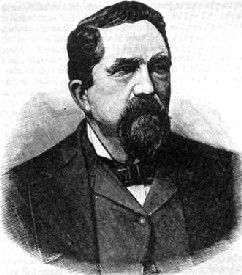
George Devol
“I don’t know just how thick my old skull is, but I do know that it is pretty thick, or it would have been cracked many years ago, for I have been struck some terrible blows on my head with iron dray-pins, pokers, clubs, stone-coal, and bowlders, which would have split any man’s skull wide open unless it was pretty thick. Doctors have often told me that my skull was nearly an inch in thickness over my forehead.”
– George Devol, Forty Years a Gambler on the Mississippi
George H. Devol was the greatest riverboat gambler in the history of the Mississippi River. He was also a con artist, a fighter, and a master at manipulating men and their money.
Born on August 1, 1829, in Marietta, Ohio, George Devol was the youngest of six children. His father was a ship carpenter and was often away from home. Though Devol had good opportunities for early education, he didn’t like school and spent most of his time playing hooky. The unmanageable boy was also prone to fighting, coming home almost daily with scratches and bruises from his numerous scuffles. When a teacher attempted to discipline him with a hardy whipping, he would turn on them, hitting them with stones that he carried in his pocket. While his father was away building boats much of the time, his mother would be forced to call in a neighbor or passerby to help with his punishment.
Devol ran away at the age of ten, serving as a cabin boy on a riverboat steamer called the Wacousta . Evidently, Devol did a good job in this capacity as he soon took a better-paying job on a boat called Walnut Hills .
Another boat came soon after – the Cicero , where Devol learned to play “Seven-Up” and the art of bluffing. Seeing the high lifestyle of the professional gamblers on the boat, Devol was determined to follow in their footsteps, and by the time he was in his teens, he could deal seconds, palm cards, and recover the cut.
Fighting would continue to be a natural part of his life, and he soon developed skills with a gun, never hesitating to pull it.
By the time the Mexican War broke out, he was on a boat called the Tiago . Soon, Devol thought it a good idea to go to war and got a job as a barkeeper on the Corvette , bound for the Rio Grande and Mexico.
While aboard the Corvette, he met a man who taught him how to “stock a deck.” Upon reaching the Rio Grande and joining the forces, he quickly utilized his newly learned skills to swindle the other soldiers. But he grew bored with soldiering, and with his pockets filled with his ill-earned gains, he returned to New Orleans, although not for long.
At the tender age of 17, Devol’s pockets were filled with almost three thousand dollars as he headed back home to Ohio, laden with gifts for his family.
While back in Ohio, he mastered the games of Faro and Rondo. Devol continued to hone his skills and made hundreds of thousands of dollars in the years before the Civil War . Working the steamboats of the South, he joined in with other card sharps, including Canada Bill Jones , Bill Rollins, Big Alexander, and many others over the years.
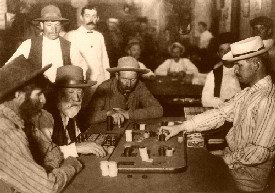
Playing Faro
One trick that Devol liked to play was betting against ministers, who inevitably lost their meager wages to the professional gambler. However, Devol would always return their money, along with this advice: “Go and sin no more.” But to the many soldiers, paymasters, farmers, thieves, and businessmen, he was not so kind.
When the war was over, the railroads began to head west, with settlements sprouting up all along the way. Many of these burgeoning towns, often filled with railroad workers, miners, and cowboys provided all manner of vices, including prostitution , numerous saloons , and the ever-present gambling halls. Supplying perfect opportunities for Devol’s operation, he followed the railroad expansion between Kansas City and Cheyenne in the early 1870s.
According to his account, Devol was working the Gold Room Saloon in Cheyenne when he encountered Wild Bill Hickok . Devol tells the story that when Hickok placed a $50 bet, he lost. He then placed another $50 bet, winning the hand that time; however, the dealer handed him back only $25. When Wild Bill protested, the dealer stated that the house limit was $25. “But you took 50 when I lost,” said Hickok, to which the dealer responded, “Fifty goes when you lose.” The quick-tempered Hickok wasn’t about to accept those terms “sitting down” and quickly whacked the dealer on the head with his walking stick, turned over the table, and stuffed his pockets with the till.
On another occasion, when Devol was working the railroad route, he beat a railroad director out of $1,200. This one-time winning game resulted in Devol’s profession being quickly curbed when the outraged official prohibited gambling on trains. Further, the Pinkerton agency was hired to be on the lookout for the most notorious professional gamblers, including Devol.
In 1892, Devol published his autobiography, Forty Years a Gambler on the Mississippi , telling of his life and probably exaggerating much of it. Shortly after he published his book, the great days of railroad and riverboat gambling were over. At his new wife’s insistence, he retired from gambling for good in 1896 and spent the last years of his life selling his book.
It is estimated that Devol won over two million dollars in his forty years of gambling. However, when he died in Hot Springs , Arkansas , in 1903, he was nearly penniless.
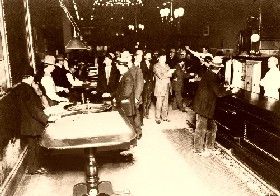
Reno, Nevada Gambling, 1910
© Kathy Weiser-Alexander / Legends of America , updated November 2021.
Old West Poker
Saloons of the Wild West
Scoundrels of the Old West
Words and phrases
Personal account.
- Access or purchase personal subscriptions
- Get our newsletter
- Save searches
- Set display preferences
Institutional access
Sign in with library card
Sign in with username / password
Recommend to your librarian
Institutional account management
Sign in as administrator on Oxford Academic
riverboat gambler noun
- Hide all quotations
What does the noun riverboat gambler mean?
There is one meaning in OED's entry for the noun riverboat gambler . See ‘Meaning & use’ for definition, usage, and quotation evidence.
This word is used in U.S. English.
How common is the noun riverboat gambler ?
Where does the noun riverboat gambler come from.
Earliest known use
The earliest known use of the noun riverboat gambler is in the 1920s.
OED's earliest evidence for riverboat gambler is from 1920, in San Francisco Chronicle .
riverboat gambler is formed within English, by compounding.
Etymons: riverboat n. , gambler n.
Nearby entries
- river bass, n. 1820–
- riverbed, n. 1781–
- river birch, n. 1846–
- river black-oak, n. 1886–98
- river-blanched, adj. 1788
- river blindness, n. 1952–
- river boar, n. 1601
- river board, n. 1823–
- riverboat, n. 1565–
- riverboat casino, n. 1958–
- riverboat gambler, n. 1920–
- riverboat gambling, n. 1953–
- river bottom, n. 1662–
- river-boy, n. 1791–
- River Brethren, n. 1849–
- river bull, n. 1639–1709
- river bullhead, n. 1763–
- river bus, n. 1929–
- river capture, n. 1890–
- river carp, n. 1653–
- river cat, n. 1770–
Thank you for visiting Oxford English Dictionary
To continue reading, please sign in below or purchase a subscription. After purchasing, please sign in below to access the content.
Meaning & use
Entry history for riverboat gambler, n..
Originally published as part of the entry for riverboat, n.
riverboat gambler, n. was first published in 2009.
oed.com is a living text, updated every three months. Modifications may include:
- further revisions to definitions, pronunciation, etymology, headwords, variant spellings, quotations, and dates;
- new senses, phrases, and quotations.
Please submit your feedback for riverboat gambler, n.
Please include your email address if you are happy to be contacted about your feedback. OUP will not use this email address for any other purpose.
Citation details
Factsheet for riverboat gambler, n., browse entry.
Top 7 Riverboat Casinos in Louisiana
Last Updated on June 12, 2023 by Adam Shaw
November 20, 2020
A couple of years ago, Louisiana lawmakers decided to make a historical decision and legalize gambling on the state’s soil.
Before that, the casinos found a workaround — offering gambling services on the so-called riverboat casinos .
These casinos aren’t ordinary gambling riverboats. They’ve become a part of Louisiana’s cultural heritage, and many tourists and locals enjoy visiting them due to the unique atmosphere they offer. After all, the only thing that’s better than playing slots is doing it on a riverboat.
Therefore, let’s check some of the riverboat gambling options you should visit if you happen to be in the Pelican State.
Amelia Belle Riverboat Casino
Operated by Boyd Gaming, this casino offers a wide variety of classic table games, such as craps, roulette, Three Card Poker, Texas Hold’em , Mississippi Stud, and more. It also comes with a fair range of one-armed bandits.

Apart from the fantastic casino floor, this riverboat also offers several interesting dining options, including the Cajun Buffet that has an all-you-can-eat policy. If you’re not into stuffing yourself with delicious food, you can always check out the Bayou Café .
Hollywood Casino Baton Rouge
If you enjoy the glamorous feeling of walking through Hollywood’s streets, you should check out Hollywood Casino Baton Rouge . This docked riverboat in Louisiana offers 1,000+ slot machines and plenty of popular table & card games, such as blackjack, craps, Three Card Poker, roulette, and more.

The casino offers you a complete Hollywood experience, with exciting restaurants, such as Celebrity Grill and Epic Buffet. If you enjoy deli products, you can always visit the Take Two Deli.
Needless to say, Hollywood Casino Baton Rouge features live music acts throughout the week.
Isle of Capri Casino, Lake Charles

Apart from the generous offer of casino games in the riverboat casino, this property also comes with a wide range of hospitality options. There are plenty of outstanding room offers, including Tower King, Tower Queen, Inn Standard King , and more. Many rooms are pet-friendly and have a great Wi-Fi connection. On top of that, the casino’s hospitality section offers a sauna, gift shop, hot tub, pool, and more.
The property doesn’t lack in gaming options either. Casino lovers can enjoy 1,100 slots, 30 table games, and even 13 poker tables .
If you like visiting available dining options in casinos, make sure to check out The Lone Wolf Express and Otis and Henry’s Bar and Grill.
Sam’s Town Hotel and Casino, Shreveport
What makes this casino stand out from the crowd is its round-the-clock service . In other words, you can visit the casino any time you like and be welcomed by a cozy and relaxed atmosphere and great service .

Sam’s Town Hotel and Casino was opened in 1994 and is currently operated by Boyd Gaming . Some of the notable restaurants that are a part of the property are the International Buffet, Java’s Deli, Smokey Joe’s Cafe, and William B’s Steakhouse.
The casino is focused on table games, and some of the most popular options are craps, craps no more, mini baccarat, roulette, Three Card Poker, Mississippi Stud, blackjack, and single deck blackjack. Moreover, players who enjoy progressive jackpot slots could find several great options.
Treasure Chest Casino

Although not as popular as some other riverboat casinos listed in this article, this option is definitely worth checking out if you want to visit an authentic classic offshore gambling house.
The exterior & interior will make you feel like you’ve entered a riverboat casino from the beginning of the 20th century. However, the interior has a modern twist to it, as it features plenty of modern video slots.
The casino offers many slot machines that are scattered all over the place . If you’re a fan of table games, you’ll like the fact that there are 36 tables where you can play blackjack , craps , roulette , mini baccarat , Mississippi Stud, Three Card Poker , Fortune Pai Gow, and more.
The riverboat is also home to two great dining options — the Vista Buffet and Cafe Pontchartrain. Live music and trivia quizzes are also pretty regular in Treasure Chest Casino.
Magnolia Bluffs Casino
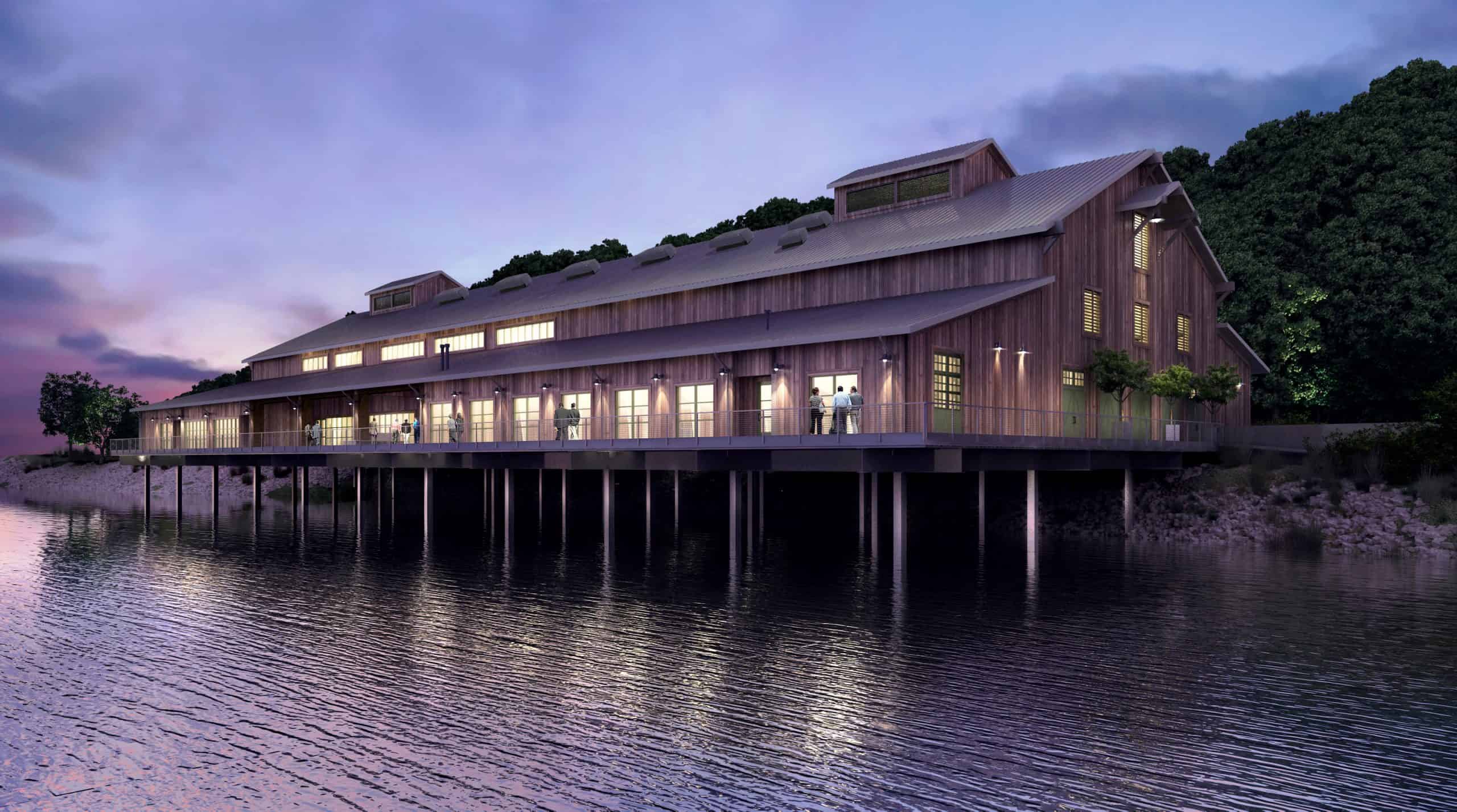
Although formally located in Mississippi, Magnolia Bluffs Casino is located on the Mississippi River and can be accessed from Louisiana via the Natchez-Vidalia Bridge .
What makes it cool is that it’s actually located in an old sawmill that was closed in 1962. That’s why the weathered wood exterior will make you feel like you’re visiting an 1800s building with a unique southern charm. However, the gambling house has a more modern interior.
The casino lies on 45,000 sq ft of gaming space and offers 580+ slot machines and 10+ table games .
Boomtown Hotel & Casino New Orleans
Formerly known as Boomtown Westbank , this riverboat casino is located on the West Bank of Jefferson Parish in the town called Harvey. Owned by Penn National Gaming , the property is the largest riverboat casino in Southeast Louisiana as it also acquired the popular River City Casino riverboat back in the 90s.

The gaming space occupies 30,000 sq ft and features more than 1,500 slots and 30 table games . The casino works 24/7, meaning you can drop by anytime you like if you want to play games.
Boomtown also offers a couple of great dining options, including Bayou Market Buffet, Bayou Market Express, Oyster Bar, and Pier 4.
Final Thoughts
Louisiana has been working hard on promoting its gambling industry, and riverboat casinos play an essential role in its strategy. They offer a unique gaming experience , as players can enjoy the beauty of lakes and rivers in the state.
If you’re visiting the Pelican State and enjoy playing slots and table games, feel free to drop by at any of the casinos mentioned in this article, and you’ll definitely have the time of your life. Even if you’re not into gambling, make sure to explore the available restaurants that are a part of these riverboat casinos.
Share this:
Most Searched Pages
Our Top Games

February 1, 2024
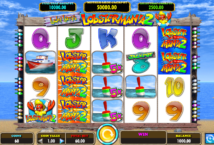
January 26, 2024

January 10, 2024

December 21, 2023

Latest Blog Posts

January 3, 2024
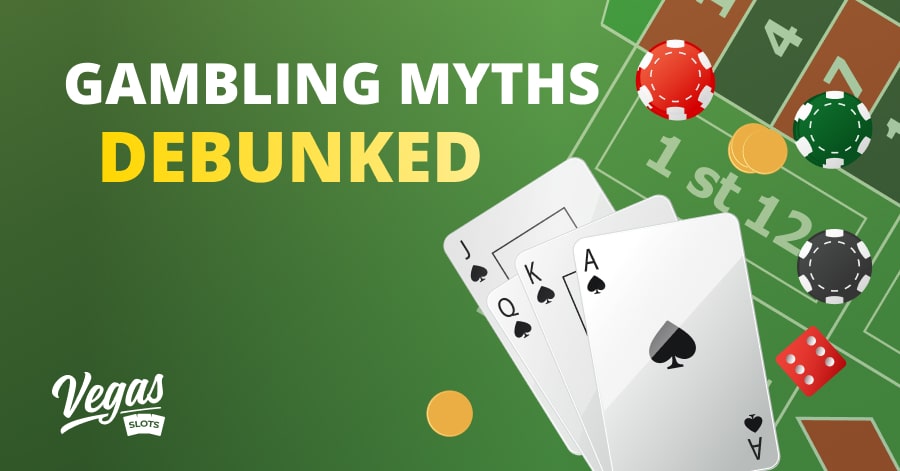
December 13, 2023

November 24, 2023
Trending Pages

March 18, 2024

Up to $1950 + 45 Spins
18+ to wager. Please Gamble Responsibly.
500% Up To $2,500 + 150 Free Spins
150% Up To $3,000
Top Rated Casino In April

$6000 + 100 Free Spins
Riverboat Gambler 17+
64 casino table games, riverboat gambler, llc, designed for ipad.
- 4.6 • 1.9K Ratings
- Offers In-App Purchases
Screenshots
Description.
Riverboat Gambler contains 65 casino games. All of these games can be found in a casino somewhere in the World, but no casino in the World has all of these games! Climb aboard The Riverboat Gambler and enjoy some of the hottest casino games around! This app serves up 65 different games and there are more planned. You will be amazed at the realism of your experience. Players are saying that they are becoming more proficient at the live games by practicing with Riverboat Gambler. Please read the reviews from loyal Players and professional casino Dealers who are using RBG for training purposes! Games Include: 1. Mississippi Stud 2. Three Card Poker 3. Ultimate Texas Hold’em 4. Criss Cross 5. Double Draw Poker 6. Let It Ride 7. Blackjack 8. Crazy 4 Poker 9. High Card Flush* 10. Pai Gow (tiles) 11. Pai Gow Poker 12. Asia Poker 13. Caribbean Stud Poker 14. Texas Hold’em BONUS 15. Baccarat 16. DJ Wild Poker 17. Tequila Poker 18. Red Dog Bonus! 19. Casino War 20. Keno 21. Roulette (American) 22. Craps 23. Lunar Poker 24. Cajun Poker 25. Four Card Poker 26. Heads Up Hold'em 27. Omaha Hold'em 28. Texas Shootout 29. Farobank 30. Face Up Pai Gow 31. Face Up Blackjack (Double Exposure Blackjack) 32. Jackpot Hold'em 33. Down Under Blackjack 34. Zombie Blackjack 35. Three Card Blitz 36. Casino Over/Under 37. Money Wheel 38. Three Card Fury 39. Four Card Frenzy 40. Big Raise Stud Poker 41. Single Deck Blackjack 42. Three Card Blackjack 43. Three Card Draw Poker 44. Deuces Wild 45. Bonus Six Stud Poker 46. 3-5-7 Poker 47. Chase the Flush 48. Fish, Prawn, Crab 49. Boule 50. Spanish 21* 51. Wild Five Poker (Poker with a Joker) 52. Boston 5 Poker 53. Deuces Wild Bonus! (Deuces Wild Hold'em Fold'em) 54. Sic Bo - IPad only 55. Six Card Poker 56. Rabbit Hunter 57. Cali Lowball 58. Deuces Wild (Video Poker) 59. Jacks or Better (Video Poker) 60. Joker Poker (Video Poker) 61. Royal Flush (Video Poker) 62. Double Double Bonus (Video Poker) 63. Triple Double Bonus (Video Poker) 64. Three Card Sabotage 65. Wild Card Stud Poker * These games are not currently available on the smaller legacy SE devices. The limited screen real estate makes it difficult to display the large number of cards that are required to play the game. These games were designed & developed by an ardent casino player who plays 3-4 times every week. No worries if you do not know how to play. Each game includes detailed instructions and rules as well as descriptions of the possible poker hands and the related payouts. Already a player? You're going to love being able to "sit at the table" and practice your technique. Each game includes its own separate set of achievements for you to tackle as you are building up your bankroll and you will periodically be rewarded with bonus chips throughout the day. You are sure to have hours of fun improving your understanding of the games! To top it off, the developer personally reviews ALL feedback and acts upon it. If you have suggestions, submit them! Many of the current games were introduced in response to Player feedback. Note: some games may not be available on devices with smaller screens because you would need a microscope to view your cards!
Version 61.0.4
Woo Hoo! I can hardly contain myself with this release!!!! I was FINALLY able to reproduce the extremely rare, yet amazingly annoying bug in Craps! I want to thank EVERYONE who worked with me on this! I received so many messages from folks saying "It's not happening to me" and others saying "it only seems to happen once in awhile", but it was not until Bill and I started to chat via an email that I had the epiphany that I needed to do something I normally wouldn't do that allowed me to reproduce the issue. For those who are new to RBG: the issue manifested as the dice having been rolled but the final images didn't match the actual "roll results". The results message matched what was shown in "Roll History", but the dice themselves were different images. The bug was elusive, scary (for a developer), and annoying. Something happened in my back and forth conversation with Bill that led me to "the dice" and "the Hops board". While focusing on those two items, I discovered that it was possible to tap the dice more than once if the Hops Board was "open". This created a situation where the dice animation got hijacked and could display the wrong dice values. I cannot emphasize enough how many hours I have spent banging my head against my MacBook trying to reproduce this issue so I could resolve it. Finally finding the issue and fixing it is like hitting the lottery! The reduction in anxiety is indescribable! Again: THANK YOU to EVERYONE who has collaborated in tracking down the root cause of this issue. While I am giving a lot of kudos to Bill for his help, your help and input was just as valuable. It just turns out that my brain was in a certain place when I was emailing with him that allowed me to "go in the right direction"! Riverboat Gambler has grown from a single game of MS Stud to one of the best table games simulators available because of the massive and loyal support that I receive from you; the Players. Your suggestions, support, and patience motivate and drive me. Please continue to stay involved and please tell your friends, family, and casino buddies about RBG. I still hold out hope that it will become a profitable endeavor that will enable me to move to the "next level" and release some amazing enhancements that I dream about! More changes, enhancements, and games are coming. Now that Craps is (hopefully) "fixed", I will be focusing my time on evolving the app even more! Please stay safe! ~Danny
Ratings and Reviews
1.9K Ratings
Perfect BUY
This app is amazing but I have one major gripe, and I only say this cause I personally work at a casino, but the Spanish 21 I’m familiar with is not depicted on your version. From my knowledge the play should be able to “Double Down” three time, each time doubling the wager placed for instance original bet being 5$ could be doubled down with another 5$ (first double) now if the player wanted again they could double down again called a “double double” which they would then have to match the current wager now being 10$ (second double) and finally if they do wish for the final time they’d be able to perform a “double double double” in which on this hand they’d wager an additional 20$ as they have a current wager of 20$. The other complaint I have is that when splitting. Both card do not immediately receive a card only one card at a time for instance A,A being split would give the play the option to hit again on the first ace after the first initial card, only when they stand or bust would the next ace receive a card. Besides this one thing I noticed the game is amazing. They’re are also bonuses that maybe you did not include due to the complexity of the bonuses and difficulty displaying them to the play, I am unsure. I appreciate your time and any response you provide. Great work keep the amazing communication and attention to your fan base.
Developer Response ,
Hey There! Thanks so much for the 5 Star review and the detailed comments. There is definitely an issue with Double Down in Spanish 21 and it's on my list to address. It should happen in the next few releases. I'll have to dig deeper into your comments about Split Aces. If possible, reach out to me using "Send Feedback" so that we can discuss via text. As to bonuses: different casinos have different bonuses and I've based many of the games on the casinos down here in South Florida; my assumption has always been that the payout odds are influenced by the wagers that are made available. My gut tells me it's part of how they ensure their "House Edge". I could be wrong, though. It would be great to have a Player Preference option to "pick your favorite casino" and have rules and pay tables adjust accordingly, but that will take a lot of work, research, and probably some amount of travel! Thanks again for posting. I appreciate you! ~Danny
Completely satisfied
Admittedly, I’m a dinosaur. I’m never going to be a gamer, on my phone or computer. But I do want to play plain ol’ video poker on my kinda old iPhone, to kill time. I don’t want to buy an app (period), especially without knowing that it’s good. I don’t want to have to pay real dinero to get fake money to keep playing a game that only pays back an occasional endorphin hit. I don’t want to get blasted with ads every minute, and I HATE those ads that ignore my mute settings and wake up my spouse. Lastly, I surely would rather somehow support a fellow human rather than any MegaCorp. This completely free River Boat Gambler(RBG) ticks all my boxes. Danny, the talented developer, is super responsive, obviously committed to providing the best app and service that he can, and refreshingly honest about the need to show an occasional ad to generate some modest revenue for his efforts, while working hard to make them as benign as possible. Via regular (every few hours) “loyalty bonuses”, RBG keeps you supplied with free chips when your luck inevitably runs out. RBG offers every casino card game you’ve ever heard of (and fun variants thereof. The app is aid out effectively and everything functions perfectly (if anything doesn’t work as it should, send feedback and Danny will fix it ASAP). I couldn’t be happier. Get it - you’ll be happy too!
Wow! I'm feeling a bit like a donkey right now! I apologize for not having responded to this review that you posted over three months ago! 😮 I honestly only noticed it tonight because I filtered my dashboard to see reviews I'd missed - I wasn't expecting to see any! 🤷♂️ Thank you for posting it, for the kind words, and for the 5 Stars! I feel really bad given that you emphasized my responsiveness; something I try to be very good about and I quite obviously failed on miserably here. I'm so glad you found RBG and I'm happy that you like it! I've developed the app to my standards; meaning I personally don't like a lot of ads, a lot of noise, and I have no patience for special effects that add no value. Personally, I just want to play the games and practice my strategies. Please don't hesitate to let me know if there is something I can do that will improve it for you. Again, I'm very sorry it took so long to reply; there's no excuse for that! I hope you're doing well! ~Danny
Just scroll, people!
Tl;dr at the bottom. I recently reached out to the game designer (Danny, who is ridiculously responsive) because I wasn’t able to access all the games. I was convinced of this because of a pop-up telling me my display was zoomed and so some games may not be accessible. I was further convinced of this because I had a strong recollection of trying (and failing) to scroll past the few games I could see on my screen. But it was a lie. It’s all a lie! [insert unnecessary maniacal laughter here] The pop-up is a minor algorithm oopsie and easily ignored. The real issue is I’m occasionally vexed by simple things. There’s a very good chance I didn’t scroll at all or tried to in the wrong direction. 🤦♀️ The good news is that being “limited” to just the few games I could immediately see, I discovered a fondness for Boston Five Poker - a game I didn’t know existed. And now I’m off to play the 50 or so games I didn’t know I could actually get to. tl;dr Really solid app, fun games, really responsive gamer designer, I’m an idiot.
😘🥳🤣 I loved our text chat; you totally made my day! And thank you very much for posting a review! I respond to every review and every support text and you may be right; I may be ridiculously responsive 🙃 Your chat came at a particularly low point during my day and I am even more grateful for that than am I for the 5 Stars. You're a gem! Thank you! ~Danny
App Privacy
The developer, Riverboat Gambler, LLC , indicated that the app’s privacy practices may include handling of data as described below. For more information, see the developer’s privacy policy .
Data Used to Track You
The following data may be used to track you across apps and websites owned by other companies:
- Identifiers
Data Not Linked to You
The following data may be collected but it is not linked to your identity:
- Diagnostics
Privacy practices may vary, for example, based on the features you use or your age. Learn More
Information
- 1,200 Chips $1.99
- 8,000 Chips $9.99
- 4,000 Chips $5.99
- 8,000 Chips (Bonus Add-On) $4.99
- 15,000 Chips $11.99
- 500 Chips $0.99
- 4,000 Chips (Bonus Add-On) $2.99
- 1,200 Chips (Bonus Add-On) $0.99
- 20,000 Chips $24.99
- 20,000 Chips (Bonus Add-On) $12.99
- Developer Website
- App Support
- Privacy Policy
You Might Also Like
Mississippi Stud - Casino Game
Pai Gow Poker Casino
Ultimate Poker Collection
Mississippi Stud Poker Casino
Beat the House Hold'em
3 Card Poker Casino

IMAGES
COMMENTS
Riverboat casino. A riverboat casino is a type of casino on a riverboat found in several states in the United States with frontage on the Mississippi River and its tributaries, or along the Gulf Coast. Several states authorized this type of casino in order to enable gambling but limit the areas where casinos could be constructed; it was a type ...
Several states simultaneously introduced laws that permitted gambling on water vessels, creating the framework under which they still operate today. Iowa was the first state to fully legalize riverboat gambling. Apart from Iowa, Riverboat gambling is legal in Mississippi, Illinois, Indiana, Louisiana, and Missouri too.
The riverboat casinos that remain today continue that grand tradition, with music playing onboard, restaurants available to players and even live entertainment offered regularly. So, if you want to step back in time and experience the old South by river—without all the outlaws and pirates—consider a riverboat cruise or evening of gaming.
History of Gambling on Riverboats. We can think of no better place to begin our journey than by painting a picture of the history and heritage of riverboats and gambling.Back in the 1800s, the situation for gambling in the USA was a bit different than today. The Mississippi Great River was the lifeblood of American industry and commerce.
Riverboats are the only casinos in some states. By 2018, 63 riverboat casinos were operating across six states. More than a sideline, these gaming houses account for the entire commercial casino operation in the states of Illinois and Missouri. By the end of 2018, gambling revenue from boats totaled $382.5 million in state tax in Illinois and ...
This classic four-story riverboat looks like it has stepped straight out of a photograph from the turn of the 20 th century. When it is lit up at night, it takes your breath away. At the tables, poker is the order of the day. The casino offers Mississippi stud, 3-card poker and Texas Holdem. There are also 800 slot games, while the Fanduel ...
The Ameristar Casino Vicksburg is one of the oldest and most crowded riverboat casinos in Mississippi with over 50,000 square feet of gaming space. The wide choice of slots, table games, and poker tables is complemented by all kinds of entertainments, from the flavors of a diverse buffet to comedy clubs and nightclubs.
Riverboat gambling became popular in the 1850s and was a casual activity, rather than an organised commercial operation. Furthermore, the river is effectively a borderline between many states, making it a no man's land and a convenient jurisdiction grey area. ... The broad definition in the state's law allows gambling facilities to be built ...
The idea behind riverboat casinos was that it would limit the areas in which casinos could be constructed, enabling gambling but keeping it to specifically designated areas. The fact that the boats were seldom taken away from the dock, or even ever taken away in some cases, didn't change the point that the legal fiction was able to be sold by ...
Riverboat gambling became popular in the early 1900s due to legislation surrounding gaming. By keeping poker, roulette, and other games of chance restricted to a riverboat, business owners could evade the anti-gambling laws that were in effect on land in states along the Mississippi River. Riverboat gaming in Mississippi was legalized in 1993 ...
The first one to become a fully recognised legal riverboat casino was in Iowa in 1989. This state, which lies above Missouri, sits on the network of rivers where riverboat gambling was popular in the 19th century. Other states which were also once smitten with riverboats, such as Louisiana and Illinois, jumped on the bandwagon and passed the ...
There is one meaning in OED's entry for the noun riverboat gambling. See 'Meaning & use' for definition, usage, and quotation evidence. See meaning & use. How common is the noun riverboat gambling? Fewer than 0.01 occurrences per million words in modern written English . 1960: 0.0053: 1970: 0.0071: 1980: 0.0082: 1990: 0.0082: 2000: 0.0098:
The first riverboat casinos made money through what is known in the trade as "convenience gambling," meaning people went there solely because it offered gambling close to home. The ability to gamble without traveling to Las Vegas or Atlantic City made up for the fact that typically, one would find slots and table games cramped on several ...
Slot machines and table games are allowed. In Illinois, the second state to authorize riverboat gambling, casino patrons may also board riverboats making regularly scheduled runs; however, they must wait until the boats are fully underway before engaging in gambling activities. Games allowed include blackjack, craps, roulette, and big six.
Riverboat Gambling: Boosting Local Economies and State Budgets. It goes without saying that riverboat gambling had has a positive impact on both local level and state budgets. For example, in Indiana, all casinos have to pay a 20% state tax. Of this, 15% goes to the state and the other 5% remains in the local community.
Gambling in the Old West. Recreation in the Old West oftentimes meant betting on the turn of a deck of cards. But for many colorful Westerners, gambling was a serious, sometimes deadly, business. As towns sprouted in the 19th-century American West — outside Army forts, at river crossings along wagon trails, in mining districts and at ...
Riverboat gambling according to many had been successful in promoting tourism and was never intended to become an industry. Despite setbacks, pressure continued from riverboat owners to lift betting/loss limits and space restrictions. These people were joined by parimutuel racetrack owners who wanted slot machines and even Iowans who favored ...
George H. Devol was the greatest riverboat gambler in the history of the Mississippi River. He was also a con artist, a fighter, and a master at manipulating men and their money. Born on August 1, 1829, in Marietta, Ohio, George Devol was the youngest of six children. His father was a ship carpenter and was often away from home.
There is one meaning in OED's entry for the noun riverboat gambler. See 'Meaning & use' for definition, usage, and quotation evidence. This word is used in U.S. English. See meaning & use. How common is the noun riverboat gambler? ... riverboat gambling, n. 1953 ...
The Symbolism Exposed. Within "Riverboat Gambler," Carly Simon artfully weaves layers of symbolism, enriching the song with deeper meaning. The riverboat symbolizes the journey of life, floating down the river of fate, stopping at various ports of opportunity and challenges. It encapsulates the uncertain nature of existence, reminding us ...
The Meaning Behind The Song: Riverboat Gambling by Jurassic Shark Introduction. I first heard the song "Riverboat Gambling" by Jurassic Shark on a sunny afternoon, while I was browsing through my friend's playlist. As the melodic guitar and soothing vocals filled the room, I found myself captivated by the lyrics and the overall ambiance ...
The gaming space occupies 30,000 sq ft and features more than 1,500 slots and 30 table games. The casino works 24/7, meaning you can drop by anytime you like if you want to play games. Boomtown also offers a couple of great dining options, including Bayou Market Buffet, Bayou Market Express, Oyster Bar, and Pier 4.
iPad. iPhone. Riverboat Gambler contains 65 casino games. All of these games can be found in a casino somewhere in the World, but no casino in the World has all of these games! Climb aboard The Riverboat Gambler and enjoy some of the hottest casino games around! This app serves up 65 different games and there are more planned.